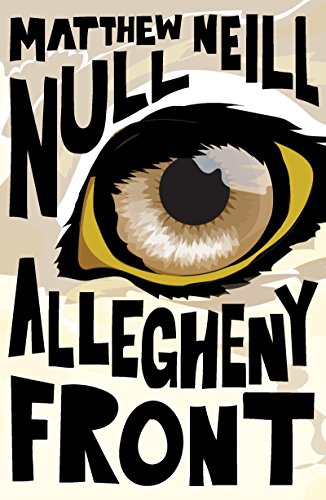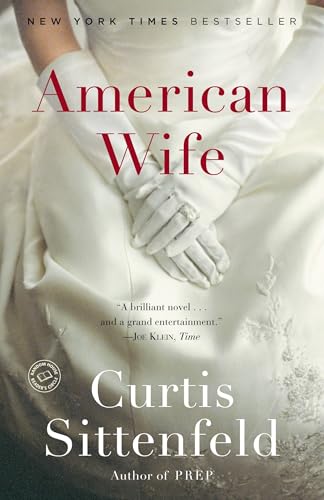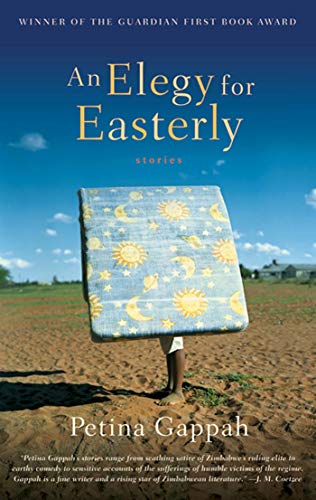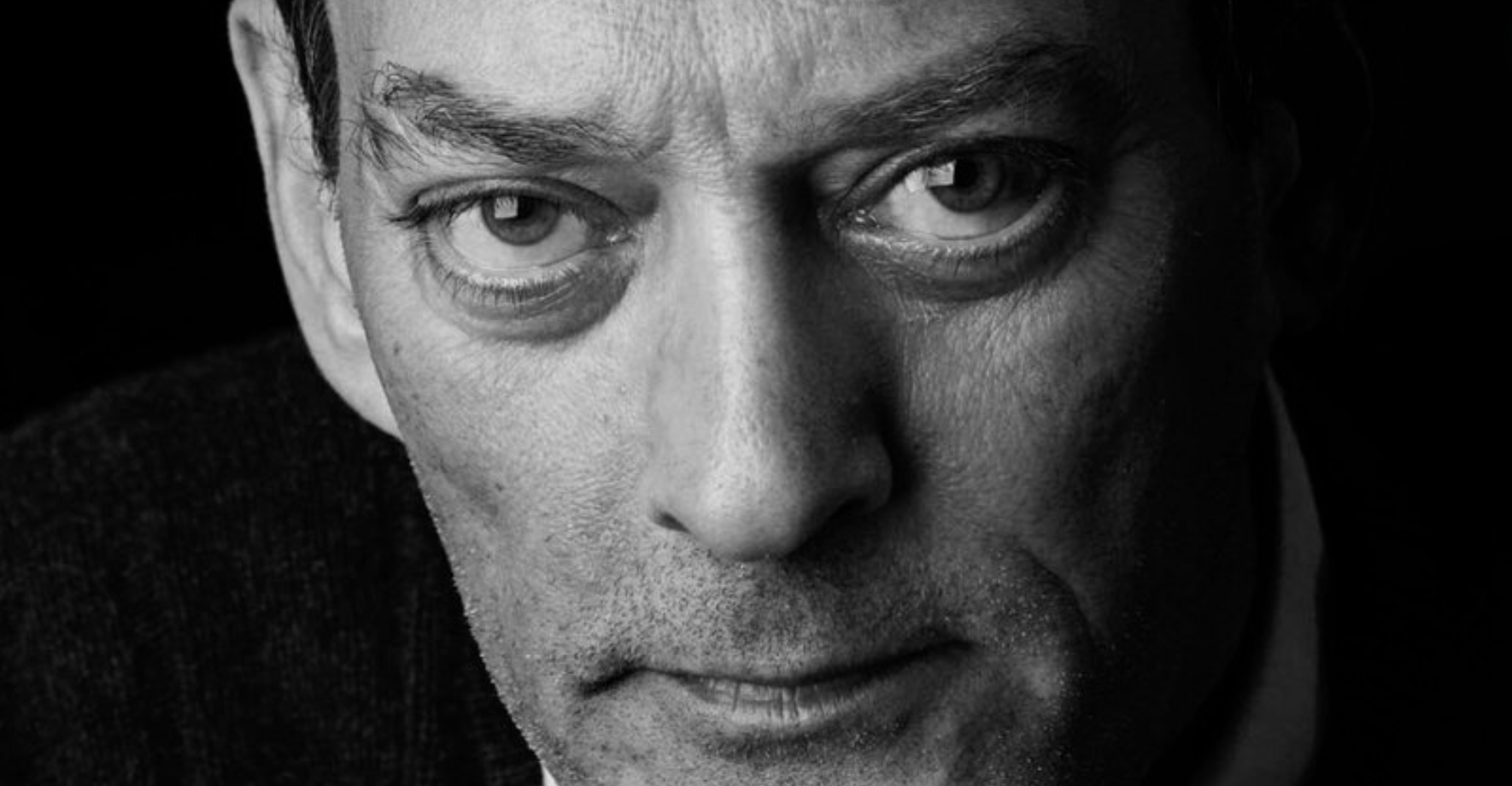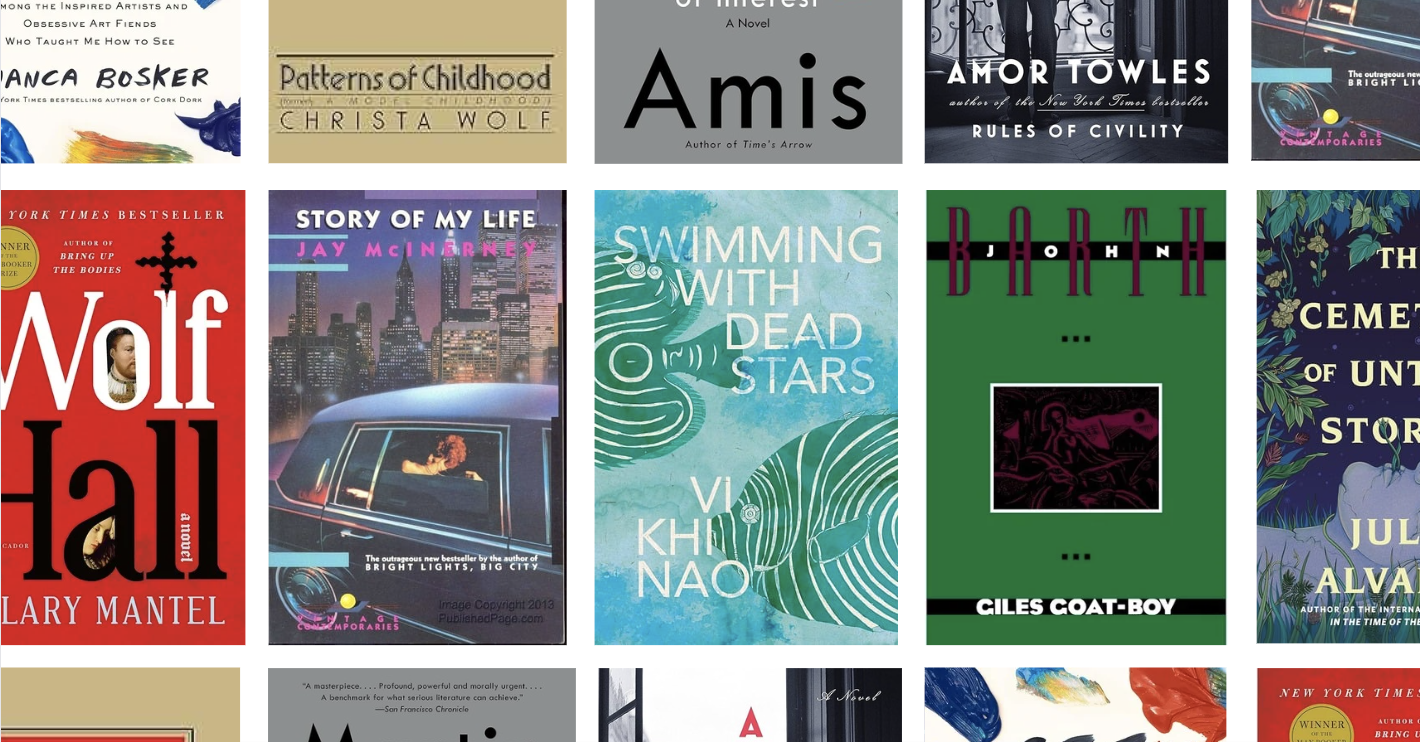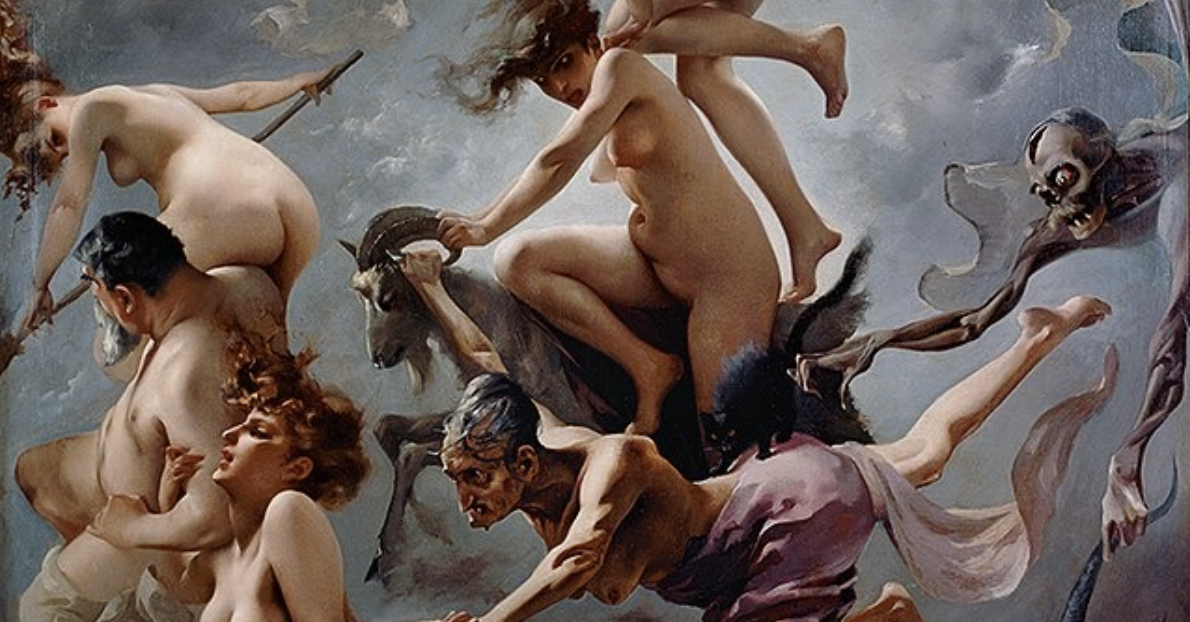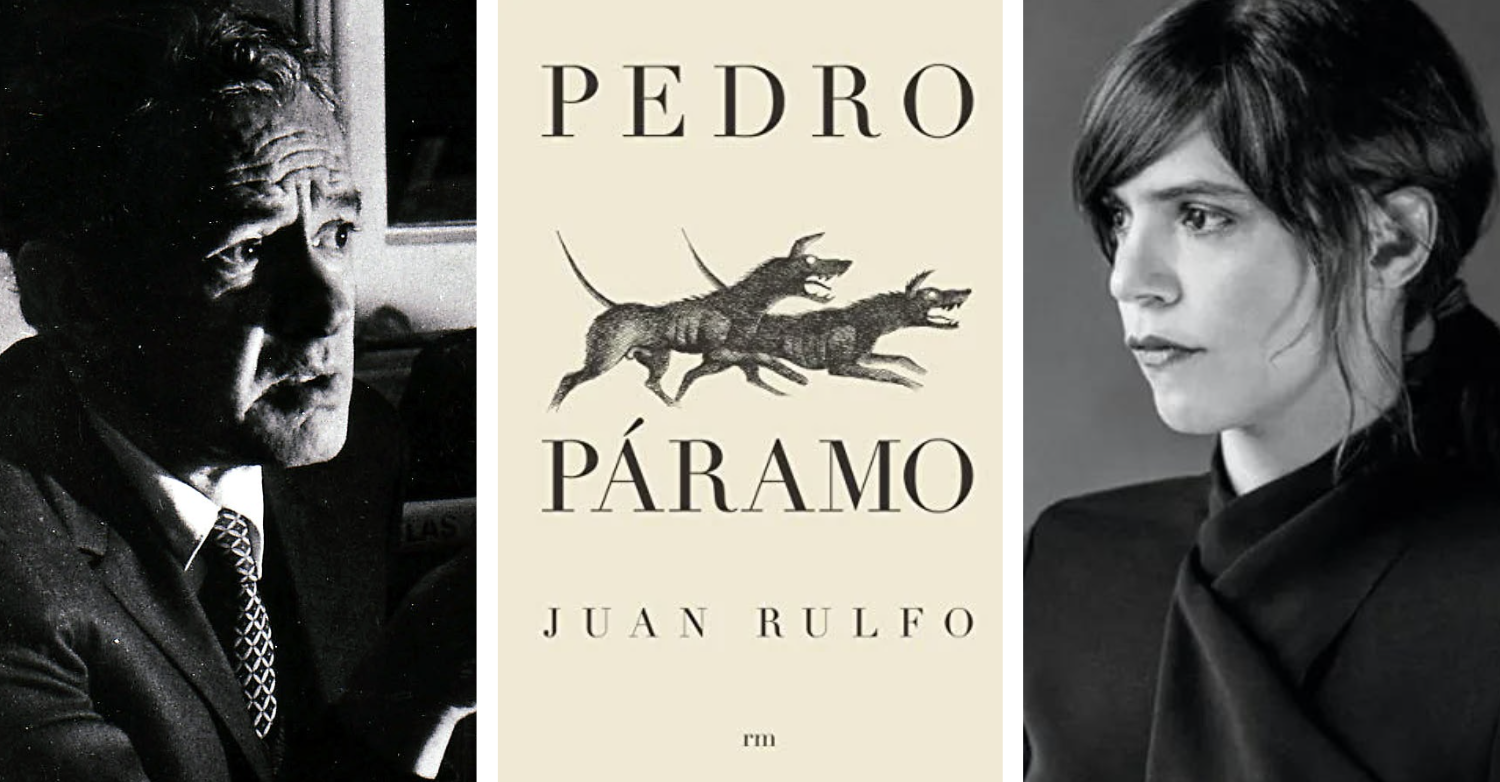We think it’s safe to say last year was a big year for the book world. In addition to new titles by Harper Lee, Jonathan Franzen, and Lauren Groff, we got novels by Ottessa Moshfegh, Claire Vaye Watkins, and our own Garth Risk Hallberg. At this early stage, it already seems evident this year will keep up the pace. There’s a new Elizabeth Strout book, for one, and a new Annie Proulx; new novels by Don DeLillo, Curtis Sittenfeld, Richard Russo and Yann Martel; and much-hyped debut novels by Cynthia D’Aprix Sweeney and Callan Wink. There’s also a new book by Alexander Chee, and a new translation of Nobel Prize-winner Herta Müller. The books previewed here are all fiction. Our nonfiction preview is available here.
While there’s no such thing as a list that has everything, we feel certain this preview — at 8,600 words and 93 titles — is the only 2016 book preview you’ll need. Scroll down to get started.
January:
 My Name Is Lucy Barton by Elizabeth Strout: The latest novel from the Pulitzer Prize-winning author of Olive Kitteridge centers on a mother and daughter’s tumultuous relationship. In a starred review, Kirkus reports: “The eponymous narrator looks back to the mid-1980s, when she goes into the hospital for an appendix removal and succumbs to a mysterious fever that keeps her there for nine weeks. The possible threat to her life brings Lucy’s mother, from whom she has been estranged for years, to her bedside — but not the father whose World War II–related trauma is largely responsible for clever Lucy’s fleeing her impoverished family for college and life as a writer.” Publishers Weekly says this “masterly” novel’s central message “is that sometimes in order to express love, one has to forgive.” Let’s hope HBO makes this one into a mini-series as well. (Edan)
My Name Is Lucy Barton by Elizabeth Strout: The latest novel from the Pulitzer Prize-winning author of Olive Kitteridge centers on a mother and daughter’s tumultuous relationship. In a starred review, Kirkus reports: “The eponymous narrator looks back to the mid-1980s, when she goes into the hospital for an appendix removal and succumbs to a mysterious fever that keeps her there for nine weeks. The possible threat to her life brings Lucy’s mother, from whom she has been estranged for years, to her bedside — but not the father whose World War II–related trauma is largely responsible for clever Lucy’s fleeing her impoverished family for college and life as a writer.” Publishers Weekly says this “masterly” novel’s central message “is that sometimes in order to express love, one has to forgive.” Let’s hope HBO makes this one into a mini-series as well. (Edan)
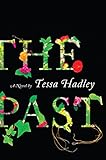 The Past by Tessa Hadley: Hadley was described by one critic as “literary fiction’s best kept secret,” and Hilary Mantel has said she is “one of those writers a reader trusts,” which, considering the source, is as resounding an endorsement as one can possibly imagine. The English novelist is the author of five novels and two short story collections; in The Past, her sixth novel, siblings reunite to sell their grandparents’ old house. Most likely unsurprising to anyone who’s reunited with family for this sort of thing, “under the idyllic surface, there are tensions.” (Elizabeth)
The Past by Tessa Hadley: Hadley was described by one critic as “literary fiction’s best kept secret,” and Hilary Mantel has said she is “one of those writers a reader trusts,” which, considering the source, is as resounding an endorsement as one can possibly imagine. The English novelist is the author of five novels and two short story collections; in The Past, her sixth novel, siblings reunite to sell their grandparents’ old house. Most likely unsurprising to anyone who’s reunited with family for this sort of thing, “under the idyllic surface, there are tensions.” (Elizabeth)
 Good on Paper by Rachel Cantor: Following her time-traveling debut, A Highly Unlikely Scenario, or a Neetsa Pizza Employee’s Guide to Saving the World (which is a member of The Millions Hall of Fame), Cantor’s second novel, Good on Paper, chronicles the story of academic and mother Shira Greene. After Shira abandons her PhD thesis on Dante Alighieri’s Vita Nuova, she takes an unfulfilling temp job. When Nobel Prize-winner Romei contacts her to translate his latest work based on Dante’s text, she couldn’t be more excited. But upon receiving his text, she fears “the work is not only untranslatable but designed to break her.” (Cara)
Good on Paper by Rachel Cantor: Following her time-traveling debut, A Highly Unlikely Scenario, or a Neetsa Pizza Employee’s Guide to Saving the World (which is a member of The Millions Hall of Fame), Cantor’s second novel, Good on Paper, chronicles the story of academic and mother Shira Greene. After Shira abandons her PhD thesis on Dante Alighieri’s Vita Nuova, she takes an unfulfilling temp job. When Nobel Prize-winner Romei contacts her to translate his latest work based on Dante’s text, she couldn’t be more excited. But upon receiving his text, she fears “the work is not only untranslatable but designed to break her.” (Cara)
 The Happy Marriage by Tahar Ben Jelloun: The latest novel by Morocco’s most acclaimed living writer focuses on the dissolution of a marriage between a renowned painter and his wife. Using two distinct points of view, Ben Jelloun lets each of his characters — man and wife — tell their side of the story. Set against the backdrop of Casablanca in the midst of an awakening women’s rights movement, The Happy Marriage explores not only the question of who’s right and who’s wrong, but also the very nature of modern matrimony. (Nick M.)
The Happy Marriage by Tahar Ben Jelloun: The latest novel by Morocco’s most acclaimed living writer focuses on the dissolution of a marriage between a renowned painter and his wife. Using two distinct points of view, Ben Jelloun lets each of his characters — man and wife — tell their side of the story. Set against the backdrop of Casablanca in the midst of an awakening women’s rights movement, The Happy Marriage explores not only the question of who’s right and who’s wrong, but also the very nature of modern matrimony. (Nick M.)
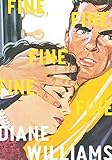 Fine, Fine, Fine, Fine, Fine by Diane Williams: Williams’s short stories operate according to the principles of Viktor Shklovsky’s ostranenie: making strange in order to reveal the ordinary anew. They are dense and dazzling oddities with an ear for patois and steeped deeply in the uncanny. Darkness and desire and despair and longing and schadenfreude and judgment roil just below the surface of seemingly pleasant exchanges, and, in their telling, subvert the reader’s expectations of just how a story unfolds. Williams’s previous collection Vicky Swanky Is a Beauty was a beauty. Fine, Fine, Fine, Fine, Fine, her forthcoming, warns of linguistic breakdown, insistence, and restlessness. (Anne)
Fine, Fine, Fine, Fine, Fine by Diane Williams: Williams’s short stories operate according to the principles of Viktor Shklovsky’s ostranenie: making strange in order to reveal the ordinary anew. They are dense and dazzling oddities with an ear for patois and steeped deeply in the uncanny. Darkness and desire and despair and longing and schadenfreude and judgment roil just below the surface of seemingly pleasant exchanges, and, in their telling, subvert the reader’s expectations of just how a story unfolds. Williams’s previous collection Vicky Swanky Is a Beauty was a beauty. Fine, Fine, Fine, Fine, Fine, her forthcoming, warns of linguistic breakdown, insistence, and restlessness. (Anne)
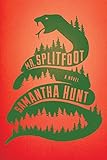 Mr. Splitfoot by Samantha Hunt: It’s been seven years since Samantha Hunt’s novel about Nicola Tesla, The Invention of Everything Else, was listed as an Orange Prize finalist. Now Hunt’s back with a modern gothic starring a scam-artist orphan who claims to talk to the dead; his sister who ages into a strange, silent woman; and, later, her pregnant niece, who follows her aunt on a trek across New York without exactly knowing why. Also featured: meteorites, a runaway nun, a noseless man, and a healthy dash of humor. Although it’s still too early to speculate on the prize-winning potential of Mr. Splitfoot, Hunt’s fantastical writing is already drawing favorable comparisons to Kelly Link and Aimee Bender, and her elegantly structured novel promises to be the year’s most unusual ghost story. (Kaulie)
Mr. Splitfoot by Samantha Hunt: It’s been seven years since Samantha Hunt’s novel about Nicola Tesla, The Invention of Everything Else, was listed as an Orange Prize finalist. Now Hunt’s back with a modern gothic starring a scam-artist orphan who claims to talk to the dead; his sister who ages into a strange, silent woman; and, later, her pregnant niece, who follows her aunt on a trek across New York without exactly knowing why. Also featured: meteorites, a runaway nun, a noseless man, and a healthy dash of humor. Although it’s still too early to speculate on the prize-winning potential of Mr. Splitfoot, Hunt’s fantastical writing is already drawing favorable comparisons to Kelly Link and Aimee Bender, and her elegantly structured novel promises to be the year’s most unusual ghost story. (Kaulie)
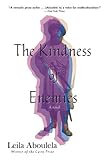 The Kindness of Enemies by Leila Aboulela: Aboulela’s new novel transports readers to Scotland, the Caucasus, St. Petersburg, and Sudan. The protagonist is a Scottish-Sudanese lecturer researching “the lion of Dagestan,” a 19th-century leader who resisted Russian incursions, when she finds out that one of her students is his descendant. As they study up on the rebel leader, and the Georgian princess he captured as a bargaining chip, the two academics become embroiled in a cultural battle of their own. Aboulela’s fifth book sounds like a fascinating combination of Leo Tolstoy’s Hadji Murat and A.S. Byatt’s Possession. (Matt)
The Kindness of Enemies by Leila Aboulela: Aboulela’s new novel transports readers to Scotland, the Caucasus, St. Petersburg, and Sudan. The protagonist is a Scottish-Sudanese lecturer researching “the lion of Dagestan,” a 19th-century leader who resisted Russian incursions, when she finds out that one of her students is his descendant. As they study up on the rebel leader, and the Georgian princess he captured as a bargaining chip, the two academics become embroiled in a cultural battle of their own. Aboulela’s fifth book sounds like a fascinating combination of Leo Tolstoy’s Hadji Murat and A.S. Byatt’s Possession. (Matt)
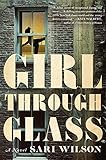 Girl Through Glass by Sari Wilson: With its intense competition and rivalries, the ballet world provides a novelist with plenty of dramatic material. Girl Through Glass alternates between late-1970s New York, where its heroine works her way into George Balanchine’s School of American Ballet, and the present day, where she is a dance professor having an affair with a student. Exploring the exquisite precision of dancing alongside the unruliness of passion, Wilson’s novel looks to be on point. (Matt)
Girl Through Glass by Sari Wilson: With its intense competition and rivalries, the ballet world provides a novelist with plenty of dramatic material. Girl Through Glass alternates between late-1970s New York, where its heroine works her way into George Balanchine’s School of American Ballet, and the present day, where she is a dance professor having an affair with a student. Exploring the exquisite precision of dancing alongside the unruliness of passion, Wilson’s novel looks to be on point. (Matt)
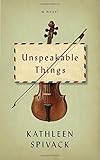 Unspeakable Things by Kathleen Spivack: In her debut novel, Spivack, an accomplished poet, tells the story of a refugee family fleeing Europe during the final year of WWII. In New York City, where they’ve been laying low, we meet a cast of characters including a Hungarian countess, an Austrian civil servant, a German pediatrician, and an eight-year-old obsessed with her family’s past — especially some long-forgotten matters involving late night, secretive meetings with Grigori Rasputin. Described by turns as “wild, erotic” as well as “daring, haunting, dark, creepy, and surreal,” Unspeakable Things certainly seems to live up to its title. (Nick M.)
Unspeakable Things by Kathleen Spivack: In her debut novel, Spivack, an accomplished poet, tells the story of a refugee family fleeing Europe during the final year of WWII. In New York City, where they’ve been laying low, we meet a cast of characters including a Hungarian countess, an Austrian civil servant, a German pediatrician, and an eight-year-old obsessed with her family’s past — especially some long-forgotten matters involving late night, secretive meetings with Grigori Rasputin. Described by turns as “wild, erotic” as well as “daring, haunting, dark, creepy, and surreal,” Unspeakable Things certainly seems to live up to its title. (Nick M.)
 What Belongs to You by Garth Greenwell: Greenwell’s debut novel expands his exquisitely written 2011 novella, Mitko. A meticulous stylist, Greenwell enlarges the story without losing its poetic tension. An American teacher of English in Bulgaria longs for Mitko, a hustler. Think the feel of James Salter’s A Sport and a Pastime. Greenwell’s lines tease and tear at the soul: “That my first encounter with Mitko B. ended in a betrayal, even a minor one, should have given me greater warning at the time, which should in turn have made my desire for him less, if not done away with it completely. But warning, in places like the bathrooms at the National Place of Culture, where we met, is like some element coterminous with the air, ubiquitous and inescapable, so that it becomes part of those who inhabit it, and thus part and parcel of the desire that draws us there.” (Nick R.)
What Belongs to You by Garth Greenwell: Greenwell’s debut novel expands his exquisitely written 2011 novella, Mitko. A meticulous stylist, Greenwell enlarges the story without losing its poetic tension. An American teacher of English in Bulgaria longs for Mitko, a hustler. Think the feel of James Salter’s A Sport and a Pastime. Greenwell’s lines tease and tear at the soul: “That my first encounter with Mitko B. ended in a betrayal, even a minor one, should have given me greater warning at the time, which should in turn have made my desire for him less, if not done away with it completely. But warning, in places like the bathrooms at the National Place of Culture, where we met, is like some element coterminous with the air, ubiquitous and inescapable, so that it becomes part of those who inhabit it, and thus part and parcel of the desire that draws us there.” (Nick R.)
 On the Edge by Rafael Chirbes: This novel about the ills of Europe generally and Spain specifically appears in English mere months after the death of its author, one of Spain’s premier novelists. Readers unmoved by, say, the sour hypotheticals of Michel Houellebecq will find a more nuanced, if no less depressing, portrait of economic decline and societal breakdown in On the Edge, the first of Chirbes’s novels to be translated into English (by Margaret Jull Costa). (Lydia)
On the Edge by Rafael Chirbes: This novel about the ills of Europe generally and Spain specifically appears in English mere months after the death of its author, one of Spain’s premier novelists. Readers unmoved by, say, the sour hypotheticals of Michel Houellebecq will find a more nuanced, if no less depressing, portrait of economic decline and societal breakdown in On the Edge, the first of Chirbes’s novels to be translated into English (by Margaret Jull Costa). (Lydia)
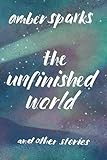 The Unfinished World by Amber Sparks: The second collection of short fiction by Sparks, The Unfinished World comprises 19 short (often very short) stories, surreal and fantastic numbers with titles like “The Lizzie Borden Jazz Babies” and “Janitor in Space.” Sparks’s first collection, May We Shed These Human Bodies, was The Atlantic Wire’s small press debut of 2012. (Lydia)
The Unfinished World by Amber Sparks: The second collection of short fiction by Sparks, The Unfinished World comprises 19 short (often very short) stories, surreal and fantastic numbers with titles like “The Lizzie Borden Jazz Babies” and “Janitor in Space.” Sparks’s first collection, May We Shed These Human Bodies, was The Atlantic Wire’s small press debut of 2012. (Lydia)
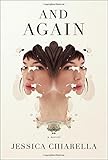 And Again by Jessica Chiarella: This debut by current UC Riverside MFA student Chiarella is a speculative literary novel about four terminally ill patients who are given new, cloned bodies that are genetically perfect and unmarred by the environmental dangers of modern life. According to the jacket copy, these four people — among them a congressman and a painter — are “restored, and unmade, by this medical miracle.” And Again is a January Indie Next Pick, and Laila Lalami calls it “a moving and beautifully crafted novel about the frailty of identity, the illusion of control, and the enduring power of love.” (Edan)
And Again by Jessica Chiarella: This debut by current UC Riverside MFA student Chiarella is a speculative literary novel about four terminally ill patients who are given new, cloned bodies that are genetically perfect and unmarred by the environmental dangers of modern life. According to the jacket copy, these four people — among them a congressman and a painter — are “restored, and unmade, by this medical miracle.” And Again is a January Indie Next Pick, and Laila Lalami calls it “a moving and beautifully crafted novel about the frailty of identity, the illusion of control, and the enduring power of love.” (Edan)
February:
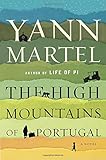 The High Mountains of Portugal by Yann Martel: The fourth novel by Martel is touted as an allegory that asks questions about loss, faith, suffering, and love. Sweeping from the 1600s to the present through three intersecting stories, this novel will no doubt be combed for comparison to his blockbuster — nine million copies and still selling strong — Life of Pi. And Martel will, no doubt, carry the comparisons well: “Once I’m in my little studio…there’s nothing here but my current novel,” he told The Globe and Mail. “I’m neither aware of the success of Life of Pi nor the sometimes very negative reviews Beatrice and Virgil got. That’s all on the outside.” (Claire)
The High Mountains of Portugal by Yann Martel: The fourth novel by Martel is touted as an allegory that asks questions about loss, faith, suffering, and love. Sweeping from the 1600s to the present through three intersecting stories, this novel will no doubt be combed for comparison to his blockbuster — nine million copies and still selling strong — Life of Pi. And Martel will, no doubt, carry the comparisons well: “Once I’m in my little studio…there’s nothing here but my current novel,” he told The Globe and Mail. “I’m neither aware of the success of Life of Pi nor the sometimes very negative reviews Beatrice and Virgil got. That’s all on the outside.” (Claire)
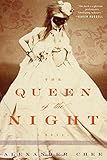 The Queen of the Night by Alexander Chee: We’ve been awaiting Chee’s sophomore novel, and here it finally is! A sweeping historical story — “a night at the opera you’ll wish never-ending,” says Helen Oyeyemi — and the kind I personally love best, with a fictional protagonist moving among real historical figures. Lilliet Berne is a diva of 19th-century Paris opera on the cusp of world fame, but at what cost? Queen of the Night traffics in secrets, betrayal, intrigue, glitz, and grit. And if you can judge a book by its cover, this one’s a real killer. (Sonya)
The Queen of the Night by Alexander Chee: We’ve been awaiting Chee’s sophomore novel, and here it finally is! A sweeping historical story — “a night at the opera you’ll wish never-ending,” says Helen Oyeyemi — and the kind I personally love best, with a fictional protagonist moving among real historical figures. Lilliet Berne is a diva of 19th-century Paris opera on the cusp of world fame, but at what cost? Queen of the Night traffics in secrets, betrayal, intrigue, glitz, and grit. And if you can judge a book by its cover, this one’s a real killer. (Sonya)
 The Lost Time Accidents by John Wray: Whiting Award-winner Wray’s fourth novel, The Lost Time Accidents, moves backwards and forwards in time, and across the Atlantic, while following the fates of two Austrian brothers. Their lives are immersed in the rich history of early-20th-century salon culture (intermingling with the likes of Gustav Klimt and Ludwig Wittgenstein), but then they diverge as one aids Adolf Hitler and the other moves to the West Village and becomes a sci-fi writer. When the former wakes one morning to discover that he has been exiled from time, he scrambles to find a way back in. This mash-up of sci-fi, time-travel, and family epic is both madcap and ambitious: “literature as high wire act without the net,” as put by Marlon James. (Anne)
The Lost Time Accidents by John Wray: Whiting Award-winner Wray’s fourth novel, The Lost Time Accidents, moves backwards and forwards in time, and across the Atlantic, while following the fates of two Austrian brothers. Their lives are immersed in the rich history of early-20th-century salon culture (intermingling with the likes of Gustav Klimt and Ludwig Wittgenstein), but then they diverge as one aids Adolf Hitler and the other moves to the West Village and becomes a sci-fi writer. When the former wakes one morning to discover that he has been exiled from time, he scrambles to find a way back in. This mash-up of sci-fi, time-travel, and family epic is both madcap and ambitious: “literature as high wire act without the net,” as put by Marlon James. (Anne)
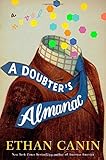 A Doubter’s Almanac by Ethan Canin: Canin is the New York Times bestselling author of The Palace Thief and America America and a faculty member at the Iowa Writers’ Workshop. Mathematical genius Milo Andret, subject of A Doubter’s Almanac, shares a home with Canin in northern Michigan. Milo travels to Berkeley, Princeton, Ohio, and back to the Midwest while studying and teaching mathematics. Later in the story, Hans, Milo’s son, reveals that he has been narrating his father’s mathematical triumphs and fall into addiction. Hans may be “scarred” by his father’s actions, but Canin finds a way to redeem him through love. (Cara)
A Doubter’s Almanac by Ethan Canin: Canin is the New York Times bestselling author of The Palace Thief and America America and a faculty member at the Iowa Writers’ Workshop. Mathematical genius Milo Andret, subject of A Doubter’s Almanac, shares a home with Canin in northern Michigan. Milo travels to Berkeley, Princeton, Ohio, and back to the Midwest while studying and teaching mathematics. Later in the story, Hans, Milo’s son, reveals that he has been narrating his father’s mathematical triumphs and fall into addiction. Hans may be “scarred” by his father’s actions, but Canin finds a way to redeem him through love. (Cara)
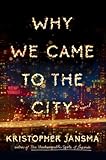 Why We Came to the City by Kristopher Jansma: Kirkus described this book as an ode to friendship, but it could just as easily be described as a meditation on mortality. Jansma’s second novel — his first was The Unchangeable Spots of Leopards, published in 2014 — follows the intertwined lives and increasingly dark trajectories of a group of four young friends in New York City. (Emily)
Why We Came to the City by Kristopher Jansma: Kirkus described this book as an ode to friendship, but it could just as easily be described as a meditation on mortality. Jansma’s second novel — his first was The Unchangeable Spots of Leopards, published in 2014 — follows the intertwined lives and increasingly dark trajectories of a group of four young friends in New York City. (Emily)
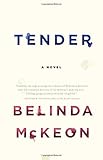 Tender by Belinda McKeon: McKeon took her place among the prominent Irish novelists with her 2011 debut, Solace, which was voted Irish Book of the Year. Her second novel, Tender, follows the lifelong friendship of Catherine and James, who meet when they are both young in Dublin. At first she is a quiet college student and he the charismatic artist who brings her out of her shell, but McKeon follows their friendship through the years and their roles change, reverse, and become as complicated as they are dear. (Janet)
Tender by Belinda McKeon: McKeon took her place among the prominent Irish novelists with her 2011 debut, Solace, which was voted Irish Book of the Year. Her second novel, Tender, follows the lifelong friendship of Catherine and James, who meet when they are both young in Dublin. At first she is a quiet college student and he the charismatic artist who brings her out of her shell, but McKeon follows their friendship through the years and their roles change, reverse, and become as complicated as they are dear. (Janet)
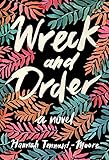 Wreck and Order by Hannah Tennant-Moore: Tennant-Moore’s debut novel, Wreck and Order, brings the audience into the life of Elsie, an intelligent young woman making self-destructive decisions. Economically privileged, she travels instead of attending college. Upon her return from Paris, she finds herself stuck in an abusive relationship and a job she hates — so she leaves the U.S. again, this time for Sri Lanka. A starred review from Publishers Weekly says, “Tennant-Moore is far too sophisticated and nuanced a writer to allow Elsie to be miraculously healed by the mysterious East.” Tennant-Moore leaves the audience with questions about how to find oneself and one’s purpose. (Cara)
Wreck and Order by Hannah Tennant-Moore: Tennant-Moore’s debut novel, Wreck and Order, brings the audience into the life of Elsie, an intelligent young woman making self-destructive decisions. Economically privileged, she travels instead of attending college. Upon her return from Paris, she finds herself stuck in an abusive relationship and a job she hates — so she leaves the U.S. again, this time for Sri Lanka. A starred review from Publishers Weekly says, “Tennant-Moore is far too sophisticated and nuanced a writer to allow Elsie to be miraculously healed by the mysterious East.” Tennant-Moore leaves the audience with questions about how to find oneself and one’s purpose. (Cara)
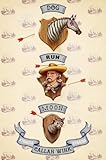 Dog Run Moon by Callan Wink: A few short years ago, Wink was a fly-fishing guide in Montana. Today, he has nearly bagged the limit of early literary successes, reeling in an NEA grant, a Stegner Fellowship at Stanford, and publications in The New Yorker, Granta, and the Best American Short Stories. “[T]hrough the transparency of his writing, at once delicate and brutally precise, the author gifts us with the wonderful feeling of knowing someone you’ve only met in a book,” Publishers Weekly says of Wink’s debut collection, which is mostly set in and around Yellowstone National Park. (Michael)
Dog Run Moon by Callan Wink: A few short years ago, Wink was a fly-fishing guide in Montana. Today, he has nearly bagged the limit of early literary successes, reeling in an NEA grant, a Stegner Fellowship at Stanford, and publications in The New Yorker, Granta, and the Best American Short Stories. “[T]hrough the transparency of his writing, at once delicate and brutally precise, the author gifts us with the wonderful feeling of knowing someone you’ve only met in a book,” Publishers Weekly says of Wink’s debut collection, which is mostly set in and around Yellowstone National Park. (Michael)
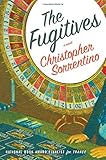 The Fugitives by Christopher Sorrentino: Ten years after Sorrentino’s much-lauded and National Book Award-nominated Trance, he returns with The Fugitives, called “something of a thriller, though more Richard Russo than Robert Ludlum,” by Kirkus. Within, struggling writer Sandy Mulligan leaves New York for a small, seemingly quiet Michigan town to escape scandal and finish his novel, and, well, does anything but. His name evokes Sorrentino’s father’s acclaimed novel Mulligan Stew, another tale of a struggling writer whose narrative falls apart. Mulligan’s novel suffers neglect as he befriends a swindler and becomes involved with an investigative reporter who’s there to uncover the crime; Sorrentino’s plot, in contrast, is fine-tuned. (Anne)
The Fugitives by Christopher Sorrentino: Ten years after Sorrentino’s much-lauded and National Book Award-nominated Trance, he returns with The Fugitives, called “something of a thriller, though more Richard Russo than Robert Ludlum,” by Kirkus. Within, struggling writer Sandy Mulligan leaves New York for a small, seemingly quiet Michigan town to escape scandal and finish his novel, and, well, does anything but. His name evokes Sorrentino’s father’s acclaimed novel Mulligan Stew, another tale of a struggling writer whose narrative falls apart. Mulligan’s novel suffers neglect as he befriends a swindler and becomes involved with an investigative reporter who’s there to uncover the crime; Sorrentino’s plot, in contrast, is fine-tuned. (Anne)
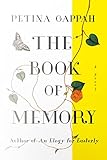 The Book of Memory by Petina Gappah: Gappah’s first book, a short story collection called An Elegy for Easterly, won the Guardian First Book Prize in 2009. The Book of Memory is her first novel, and if the first sentence of the description doesn’t hook you, I’m not sure what to tell you: “Memory is an albino woman languishing in Chikurubi Maximum Security Prison in Harare, Zimbabwe, where she has been convicted of murder.” The novel follows this “uniquely slippery narrator” as she pieces together her crime and the life that led her there. (Elizabeth)
The Book of Memory by Petina Gappah: Gappah’s first book, a short story collection called An Elegy for Easterly, won the Guardian First Book Prize in 2009. The Book of Memory is her first novel, and if the first sentence of the description doesn’t hook you, I’m not sure what to tell you: “Memory is an albino woman languishing in Chikurubi Maximum Security Prison in Harare, Zimbabwe, where she has been convicted of murder.” The novel follows this “uniquely slippery narrator” as she pieces together her crime and the life that led her there. (Elizabeth)
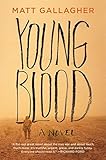 Youngblood by Matthew Gallagher: In his debut work of fiction, Gallagher, a former U.S. Army captain, focuses his attentions on Jack Porter, a newly-minted lieutenant grappling with the drawdown of forces in Iraq. Struggling with the task of maintaining a delicate peace amongst warlords and militias, as well as the aggressive pressures being applied by a new commanding officer, Jack finds himself embroiled in a conflict between the nation he serves and the one he’s supposedly been sent to help. Described as “truthful, urgent, grave and darkly funny” — as well as “a slap in the face to a culture that’s grown all too comfortable with the notion of endless war” — this novel comes more than 12 years after George W. Bush declared, “Mission Accomplished,” and nine months before we elect our next president. (Nick M.)
Youngblood by Matthew Gallagher: In his debut work of fiction, Gallagher, a former U.S. Army captain, focuses his attentions on Jack Porter, a newly-minted lieutenant grappling with the drawdown of forces in Iraq. Struggling with the task of maintaining a delicate peace amongst warlords and militias, as well as the aggressive pressures being applied by a new commanding officer, Jack finds himself embroiled in a conflict between the nation he serves and the one he’s supposedly been sent to help. Described as “truthful, urgent, grave and darkly funny” — as well as “a slap in the face to a culture that’s grown all too comfortable with the notion of endless war” — this novel comes more than 12 years after George W. Bush declared, “Mission Accomplished,” and nine months before we elect our next president. (Nick M.)
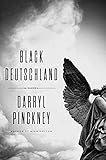 Black Deutschland by Darryl Pinckney: West Berlin in the years before the Wall came down — “that petri dish of romantic radicalism” — is the lush backdrop for Pinckney’s second novel, Black Deutschland. It’s the story of Jed Goodfinch, a young gay black man who flees his stifling hometown of Chicago for Berlin, hoping to recapture the magic decadence of W.H. Auden and Christopher Isherwood’s Weimar era and, in the process, remake and discover himself. In Berlin, Jed is free to become “that person I so admired, the black American expatriate.” Kirkus praises the novel for embodying the “inventive, idiosyncratic styles” now flourishing in African-American writing. (Bill)
Black Deutschland by Darryl Pinckney: West Berlin in the years before the Wall came down — “that petri dish of romantic radicalism” — is the lush backdrop for Pinckney’s second novel, Black Deutschland. It’s the story of Jed Goodfinch, a young gay black man who flees his stifling hometown of Chicago for Berlin, hoping to recapture the magic decadence of W.H. Auden and Christopher Isherwood’s Weimar era and, in the process, remake and discover himself. In Berlin, Jed is free to become “that person I so admired, the black American expatriate.” Kirkus praises the novel for embodying the “inventive, idiosyncratic styles” now flourishing in African-American writing. (Bill)
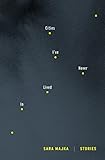 Cities I’ve Never Lived In by Sara Majka: The linked stories in Majka’s debut collection beg the question how much of ourselves we leave behind with each departure we make, as we become “citizens of the places where we cannot stay.” Kelly Link offers high praise: “A collection that leaves you longing — as one longs to return to much loved, much missed homes and communities and cities — for places that you, the reader, have never been. Prodigal with insight into why and how people love and leave, and love again.” You can read excerpts at Catapult and Longreads. (Bruna)
Cities I’ve Never Lived In by Sara Majka: The linked stories in Majka’s debut collection beg the question how much of ourselves we leave behind with each departure we make, as we become “citizens of the places where we cannot stay.” Kelly Link offers high praise: “A collection that leaves you longing — as one longs to return to much loved, much missed homes and communities and cities — for places that you, the reader, have never been. Prodigal with insight into why and how people love and leave, and love again.” You can read excerpts at Catapult and Longreads. (Bruna)
 The Heart by Maylis de Kerangal: De Kerangal, a short-lister for the Prix Goncourt, has not been widely translated in English, although this may change after this novel — her first translation from an American publisher — simultaneously ruins and elevates everyone’s week/month/year. The Heart is a short and devastating account of a human heart (among other organs) as it makes its way from a dead person to a chronically ill person. It is part medical thriller, part reportage on the process of organ donation, part social study, part meditation on the unbearable pathos of life. (Lydia)
The Heart by Maylis de Kerangal: De Kerangal, a short-lister for the Prix Goncourt, has not been widely translated in English, although this may change after this novel — her first translation from an American publisher — simultaneously ruins and elevates everyone’s week/month/year. The Heart is a short and devastating account of a human heart (among other organs) as it makes its way from a dead person to a chronically ill person. It is part medical thriller, part reportage on the process of organ donation, part social study, part meditation on the unbearable pathos of life. (Lydia)
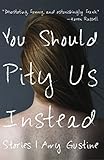 You Should Pity Us Instead by Amy Gustine: A debut collection of crisp short stories about people in various forms of extremis — people with kidnapped sons, babies who won’t stop crying, too many cats. The scenarios vary wildly in terms of their objective badness, but that’s how life is, and the writer treats them all with gravity. (Lydia)
You Should Pity Us Instead by Amy Gustine: A debut collection of crisp short stories about people in various forms of extremis — people with kidnapped sons, babies who won’t stop crying, too many cats. The scenarios vary wildly in terms of their objective badness, but that’s how life is, and the writer treats them all with gravity. (Lydia)
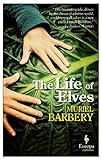 The Lives of Elves by Muriel Barbery: Following the hoopla around her surprise bestseller The Elegance of the Hedgehog, Barbery, trained as a philosopher, became anxious about expectations for the next book. She traveled, and went back to teaching philosophy. She told The Independent that for a time she had lost the desire to write. Eight years on, we have The Lives of Elves, the story of two 12-year-old girls in Italy and France who each discover the world of elves. Barbery says the book is neither a fairytale nor a parable, strictly speaking, but that she is interested in “enchantment” — how the modern world is “cut off from” from its poetic illusions. (Sonya)
The Lives of Elves by Muriel Barbery: Following the hoopla around her surprise bestseller The Elegance of the Hedgehog, Barbery, trained as a philosopher, became anxious about expectations for the next book. She traveled, and went back to teaching philosophy. She told The Independent that for a time she had lost the desire to write. Eight years on, we have The Lives of Elves, the story of two 12-year-old girls in Italy and France who each discover the world of elves. Barbery says the book is neither a fairytale nor a parable, strictly speaking, but that she is interested in “enchantment” — how the modern world is “cut off from” from its poetic illusions. (Sonya)
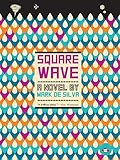 Square Wave by Mark de Silva: A dystopian debut set in America with a leitmotif of imperial power struggles in Sri Lanka in the 17th century. Part mystery, part sci-fi thriller, the novel reportedly deals with “the psychological effects of a militarized state upon its citizenry” — highly topical for Americans today. Readers of The New York Times may recognize de Silva’s name from the opinion section, where he was formerly a staffer. (Lydia)
Square Wave by Mark de Silva: A dystopian debut set in America with a leitmotif of imperial power struggles in Sri Lanka in the 17th century. Part mystery, part sci-fi thriller, the novel reportedly deals with “the psychological effects of a militarized state upon its citizenry” — highly topical for Americans today. Readers of The New York Times may recognize de Silva’s name from the opinion section, where he was formerly a staffer. (Lydia)
 The Arrangement by Ashley Warlick: Food writing fans may want to check out a novelization of the life of M.F.K. Fisher, focusing on, the title suggests, the more salacious personal details of the beloved food writer’s life. (Lydia)
The Arrangement by Ashley Warlick: Food writing fans may want to check out a novelization of the life of M.F.K. Fisher, focusing on, the title suggests, the more salacious personal details of the beloved food writer’s life. (Lydia)
 Sudden Death by Álvaro Enrigue: At once erudite and phantasmagoric, this novel begins with a 16th-century tennis match between the painter Caravaggio and the poet Francisco de Quevedo and swirls lysergically outward to take in the whole history of European conquest. It won awards in Spain and in Enrigue’s native Mexico; now Natasha Wimmer gives us an English translation. (Garth)
Sudden Death by Álvaro Enrigue: At once erudite and phantasmagoric, this novel begins with a 16th-century tennis match between the painter Caravaggio and the poet Francisco de Quevedo and swirls lysergically outward to take in the whole history of European conquest. It won awards in Spain and in Enrigue’s native Mexico; now Natasha Wimmer gives us an English translation. (Garth)
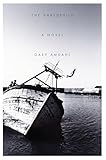 The Daredevils by Gary Amdahl: Over the last decade, Amdahl has traced an eccentric orbit through the indie-press cosmos; his mixture of bleakness, comedy, and virtuosity recalls the Coen Brothers, or Stanley Elkin’s A Bad Man. The “Amdahl Library” project at Artistically Declined Press seems to be on hold for now, but perhaps this novel, about a young man riding the currents of radical politics and theater in the early-12th century, will bring him a wider audience. (Garth)
The Daredevils by Gary Amdahl: Over the last decade, Amdahl has traced an eccentric orbit through the indie-press cosmos; his mixture of bleakness, comedy, and virtuosity recalls the Coen Brothers, or Stanley Elkin’s A Bad Man. The “Amdahl Library” project at Artistically Declined Press seems to be on hold for now, but perhaps this novel, about a young man riding the currents of radical politics and theater in the early-12th century, will bring him a wider audience. (Garth)
March:
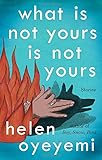 What Is Not Yours Is Not Yours by Helen Oyeyemi: Oyeyemi wrote her first novel, The Icarus Girl, at 18 and was later included on Granta’s Best of Young British Novelists in 2013. Following her fifth release, the critically-praised novel Boy, Snow, Bird, in 2014, Oyeyemi is publishing her first collection of short stories. The stories draw on similar fairy tale themes as her past works. In What Is Not Yours Is Not Yours, Oyeyemi links her characters through literal and metaphorical keys — to a house, a heart, a secret. If you can’t wait to get your hands on the collection, one of the stories, “‘Sorry’ Doesn’t Sweeten Her Tea,” was published in Ploughshares this summer. (Cara)
What Is Not Yours Is Not Yours by Helen Oyeyemi: Oyeyemi wrote her first novel, The Icarus Girl, at 18 and was later included on Granta’s Best of Young British Novelists in 2013. Following her fifth release, the critically-praised novel Boy, Snow, Bird, in 2014, Oyeyemi is publishing her first collection of short stories. The stories draw on similar fairy tale themes as her past works. In What Is Not Yours Is Not Yours, Oyeyemi links her characters through literal and metaphorical keys — to a house, a heart, a secret. If you can’t wait to get your hands on the collection, one of the stories, “‘Sorry’ Doesn’t Sweeten Her Tea,” was published in Ploughshares this summer. (Cara)
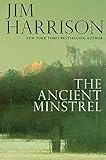 The Ancient Minstrel by Jim Harrison: With The Ancient Minstrel, our national treasure known as Jim Harrison returns to his greatest strength, the novella. Like Legends of the Fall, this new book is a trio of novellas that showcase Harrison’s seemingly limitless range. In the title piece, he has big fun at his own expense, spoofing an aging writer who wrestles with literary fame, his estranged wife, and an unplanned litter of piglets. In Eggs, a Montana woman attempting to have her first child reminisces about collecting eggs at her grandparents’ country home in England. And in The Case of the Howling Buddhas, retired detective Sunderson returns from earlier novels to investigate a bizarre cult. The book abounds with Harrison’s twin trademarks: wisdom and humor. (Bill)
The Ancient Minstrel by Jim Harrison: With The Ancient Minstrel, our national treasure known as Jim Harrison returns to his greatest strength, the novella. Like Legends of the Fall, this new book is a trio of novellas that showcase Harrison’s seemingly limitless range. In the title piece, he has big fun at his own expense, spoofing an aging writer who wrestles with literary fame, his estranged wife, and an unplanned litter of piglets. In Eggs, a Montana woman attempting to have her first child reminisces about collecting eggs at her grandparents’ country home in England. And in The Case of the Howling Buddhas, retired detective Sunderson returns from earlier novels to investigate a bizarre cult. The book abounds with Harrison’s twin trademarks: wisdom and humor. (Bill)
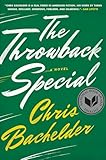 The Throwback Special by Chris Bachelder: As a fan of sports talk radio and its obsessive analysis, I’m looking forward to Bachelder’s novel, which endlessly dissects the brutal 1985 play where Lawrence Taylor sacked Washington’s quarterback Joe Theismann, breaking his leg. In the novel, 22 friends meet to reenact the play, an occasion that allows Bacheler to philosophize about memory and the inherent chaos of sports. As he put it in a New York Times essay: “I’m moved…by the chasm…between heady design and disappointing outcome, between idealistic grandeur and violent calamity.” (Matt)
The Throwback Special by Chris Bachelder: As a fan of sports talk radio and its obsessive analysis, I’m looking forward to Bachelder’s novel, which endlessly dissects the brutal 1985 play where Lawrence Taylor sacked Washington’s quarterback Joe Theismann, breaking his leg. In the novel, 22 friends meet to reenact the play, an occasion that allows Bacheler to philosophize about memory and the inherent chaos of sports. As he put it in a New York Times essay: “I’m moved…by the chasm…between heady design and disappointing outcome, between idealistic grandeur and violent calamity.” (Matt)
 The Year of the Runaways by Sunjeev Sahota: Sahota’s second novel is the only title on the 2015 Man Booker Prize shortlist that has yet to be published in the United States. It tells the story of four Indians who emigrate to the north of England and find their lives twisted together in the process. Many critics cited its power as a political novel, particularly in a year when migration has dominated news cycles. But it works on multiple levels: The Guardian’s reviewer wrote, “This is a novel that takes on the largest questions and still shines in its smallest details.” (Elizabeth)
The Year of the Runaways by Sunjeev Sahota: Sahota’s second novel is the only title on the 2015 Man Booker Prize shortlist that has yet to be published in the United States. It tells the story of four Indians who emigrate to the north of England and find their lives twisted together in the process. Many critics cited its power as a political novel, particularly in a year when migration has dominated news cycles. But it works on multiple levels: The Guardian’s reviewer wrote, “This is a novel that takes on the largest questions and still shines in its smallest details.” (Elizabeth)
 Burning Down the House by Jane Mendelsohn: The author of the 1990s bestseller I Was Amelia Earhart here focuses on a wealthy New York family beset by internal rivalries and an involvement, perhaps unwitting, in a dark underworld of international crime. Mendelsohn’s novel hopscotches the globe from Manhattan to London, Rome, Laos, and Turkey, trailing intrigue and ill-spent fortunes. (Michael)
Burning Down the House by Jane Mendelsohn: The author of the 1990s bestseller I Was Amelia Earhart here focuses on a wealthy New York family beset by internal rivalries and an involvement, perhaps unwitting, in a dark underworld of international crime. Mendelsohn’s novel hopscotches the globe from Manhattan to London, Rome, Laos, and Turkey, trailing intrigue and ill-spent fortunes. (Michael)
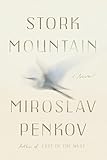 Stork Mountain by Miroslav Penkov: In this first novel from Penkov (author of the story collection East of the West), a young Bulgarian immigrant returns to the borderlands of his home country in search of his grandfather. Molly Antopol calls it “a gorgeous and big-hearted novel that manages to be both a page-turning adventure story and a nuanced meditation on the meaning of home.” (Bruna)
Stork Mountain by Miroslav Penkov: In this first novel from Penkov (author of the story collection East of the West), a young Bulgarian immigrant returns to the borderlands of his home country in search of his grandfather. Molly Antopol calls it “a gorgeous and big-hearted novel that manages to be both a page-turning adventure story and a nuanced meditation on the meaning of home.” (Bruna)
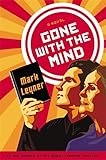 Gone with the Mind by Mark Leyner: With novels like Et Tu, Babe and The Sugar Frosted Nutsack, Leyner was one of the postmodern darlings of the 1990s (or you may remember him sitting around the table with Jonathan Franzen and David Foster Wallace for the legendary Charlie Rose segment). After spending almost the last decade on non-fiction and movie projects, he’s back with a new novel in which the fictional Mark Leyner reads from his autobiography at a reading set up by his mother at a New Jersey mall’s food court. Mark, his mother, and a few Panda Express employees share an evening that is absurd and profound — basically Leyneresque. (Janet)
Gone with the Mind by Mark Leyner: With novels like Et Tu, Babe and The Sugar Frosted Nutsack, Leyner was one of the postmodern darlings of the 1990s (or you may remember him sitting around the table with Jonathan Franzen and David Foster Wallace for the legendary Charlie Rose segment). After spending almost the last decade on non-fiction and movie projects, he’s back with a new novel in which the fictional Mark Leyner reads from his autobiography at a reading set up by his mother at a New Jersey mall’s food court. Mark, his mother, and a few Panda Express employees share an evening that is absurd and profound — basically Leyneresque. (Janet)
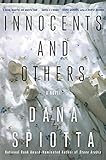 Innocents and Others by Dana Spiotta: “Maybe I’m a writer so I have an excuse to do research,” Spiotta said of what she enjoys about the writing process. And yet, for all of her research, she avoids the pitfalls of imagination harnessed by fact. In fact, Spiotta’s fourth and latest novel, Innocents and Others, is nearly filmic, channeling Jean-Luc Godard, according to Rachel Kushner, and “like classic JLG is brilliant, and erotic, and pop.” Turn to The New Yorker excerpt to see for yourself: witness Jelly, a loner who uses the phone as a tool for calculated seduction, and in doing so seduces the reader, too. (Anne)
Innocents and Others by Dana Spiotta: “Maybe I’m a writer so I have an excuse to do research,” Spiotta said of what she enjoys about the writing process. And yet, for all of her research, she avoids the pitfalls of imagination harnessed by fact. In fact, Spiotta’s fourth and latest novel, Innocents and Others, is nearly filmic, channeling Jean-Luc Godard, according to Rachel Kushner, and “like classic JLG is brilliant, and erotic, and pop.” Turn to The New Yorker excerpt to see for yourself: witness Jelly, a loner who uses the phone as a tool for calculated seduction, and in doing so seduces the reader, too. (Anne)
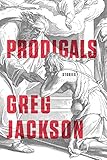 Prodigals by Greg Jackson: Jackson’s collection opens with a story originally published in The New Yorker, ”Wagner in the Desert,” a crackling tale of debauchery set in Palm Springs. In it, a group of highly-educated, creative, and successful friends seek to “baptize [their] minds in an enforced nullity.” They also repeatedly attempt to go on a hike. The wonderfully titled “Serve-and-Volley, Near Vichy,” in which a former tennis star enlists his houseguest in a bizarre project, and the eerily beautiful “Tanner’s Sisters” are two particularly memorable stories in this sharp and often haunting debut. (Matt)
Prodigals by Greg Jackson: Jackson’s collection opens with a story originally published in The New Yorker, ”Wagner in the Desert,” a crackling tale of debauchery set in Palm Springs. In it, a group of highly-educated, creative, and successful friends seek to “baptize [their] minds in an enforced nullity.” They also repeatedly attempt to go on a hike. The wonderfully titled “Serve-and-Volley, Near Vichy,” in which a former tennis star enlists his houseguest in a bizarre project, and the eerily beautiful “Tanner’s Sisters” are two particularly memorable stories in this sharp and often haunting debut. (Matt)
 Shelter by Jung Yun: Yun’s debut novel concerns Kyung Cho: a husband, father, and college professor in financial trouble who can no longer afford his home. When his own parents — whom he barely tolerates because they’ve never shown him warmth and affection — are faced with violence and must move in with him, Cho can no longer hide his anger and resentment toward them. The jacket copy compares the book to Affliction and House of Sand and Fog, and James Scott, author of The Kept, calls it “an urgent novel.” Yun’s work has previously been published in Tin House. (Edan)
Shelter by Jung Yun: Yun’s debut novel concerns Kyung Cho: a husband, father, and college professor in financial trouble who can no longer afford his home. When his own parents — whom he barely tolerates because they’ve never shown him warmth and affection — are faced with violence and must move in with him, Cho can no longer hide his anger and resentment toward them. The jacket copy compares the book to Affliction and House of Sand and Fog, and James Scott, author of The Kept, calls it “an urgent novel.” Yun’s work has previously been published in Tin House. (Edan)
 99 Poems: New and Selected by Dana Gioia: A gifted poet of rhythm and reason, Gioia’s civic and critical pedigree is impressive. A previous chairman of the National Endowment for the Arts, Gioia was recently named California’s Poet Laureate. In recent years Gioia’s critical writing has taken precedence — his 2013 essay “The Catholic Writer Today” is already a classic in its genre – but this new and selected collection marks his return to verse. Graywolf is Gioia’s longtime publisher, so look for emblematic works like “Becoming a Redwood” next to new poems like “Hot Summer Night:” “Let’s live in the flesh and not on a screen. / Let’s dress like people who want to be seen.” (Nick R.)
99 Poems: New and Selected by Dana Gioia: A gifted poet of rhythm and reason, Gioia’s civic and critical pedigree is impressive. A previous chairman of the National Endowment for the Arts, Gioia was recently named California’s Poet Laureate. In recent years Gioia’s critical writing has taken precedence — his 2013 essay “The Catholic Writer Today” is already a classic in its genre – but this new and selected collection marks his return to verse. Graywolf is Gioia’s longtime publisher, so look for emblematic works like “Becoming a Redwood” next to new poems like “Hot Summer Night:” “Let’s live in the flesh and not on a screen. / Let’s dress like people who want to be seen.” (Nick R.)
 Margaret the First by Danielle Dutton: “I had rather be a meteor, singly, alone,” writes Margaret Cavendish, the titular character in Dutton’s novel Margaret the First. Cavendish is “a shy but audacious” woman of letters, whose writing and ambitions were ahead of her time. The taut prose and supple backdrop of courtly life are irresistible. (Witness: quail in broth and oysters; bowls stuffed with winter roses, petals tissue-thin; strange instruments set beside snuffboxes.) Dutton is something of a meteor herself, as founder of the Dorothy Project and with two wondrous books already under her belt, including the Believer Book Award-nominated novel Sprawl. (Anne)
Margaret the First by Danielle Dutton: “I had rather be a meteor, singly, alone,” writes Margaret Cavendish, the titular character in Dutton’s novel Margaret the First. Cavendish is “a shy but audacious” woman of letters, whose writing and ambitions were ahead of her time. The taut prose and supple backdrop of courtly life are irresistible. (Witness: quail in broth and oysters; bowls stuffed with winter roses, petals tissue-thin; strange instruments set beside snuffboxes.) Dutton is something of a meteor herself, as founder of the Dorothy Project and with two wondrous books already under her belt, including the Believer Book Award-nominated novel Sprawl. (Anne)
 The North Water by Ian McGuire: A raw and compulsively readable swashbuckler about the whaling business, with violence and intrigue in dirty port towns and on the high seas. There are many disturbing interactions between people and people, and people and animals — think The Revenant for the Arctic Circle. This is McGuire’s second novel; he is also the author of the “refreshingly low-minded campus novel” Incredible Bodies. (Lydia)
The North Water by Ian McGuire: A raw and compulsively readable swashbuckler about the whaling business, with violence and intrigue in dirty port towns and on the high seas. There are many disturbing interactions between people and people, and people and animals — think The Revenant for the Arctic Circle. This is McGuire’s second novel; he is also the author of the “refreshingly low-minded campus novel” Incredible Bodies. (Lydia)
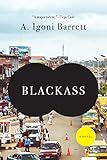 Blackass by A. Igoni Barrett: A young middle-class Nigerian man wakes up in his bed one morning to find that he has become white in the night. As a consequence, he loses his family but gains all manner of undeserved and unsolicited privileges, from management positions at various enterprises to the favors of beautiful women from the upper crust of Lagos society. His dizzying tragicomic odyssey paints a vivid portrait of the social and economic complexities of a modern megacity. (Lydia)
Blackass by A. Igoni Barrett: A young middle-class Nigerian man wakes up in his bed one morning to find that he has become white in the night. As a consequence, he loses his family but gains all manner of undeserved and unsolicited privileges, from management positions at various enterprises to the favors of beautiful women from the upper crust of Lagos society. His dizzying tragicomic odyssey paints a vivid portrait of the social and economic complexities of a modern megacity. (Lydia)
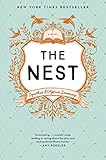 The Nest by Cynthia D’Aprix Sweeney: D’Aprix Sweeney’s debut novel The Nest will hit shelves in March trailing seductive pre-hype: we learned last December that the book was sold to Ecco for seven figures, and that it’s the story of a wealthy, “spectacularly dysfunctional” family — which for me brings to mind John Cheever, or maybe even the TV series Bloodlines, in which one of the siblings is a particular mess and the others have to deal with him. But The Nest has been described as “warm,” “funny,” and “tender,” so perhaps the novel is more an antidote to the darkness in family dysfunction we’ve known and loved — fucked-up families with hearts of gold? (Sonya)
The Nest by Cynthia D’Aprix Sweeney: D’Aprix Sweeney’s debut novel The Nest will hit shelves in March trailing seductive pre-hype: we learned last December that the book was sold to Ecco for seven figures, and that it’s the story of a wealthy, “spectacularly dysfunctional” family — which for me brings to mind John Cheever, or maybe even the TV series Bloodlines, in which one of the siblings is a particular mess and the others have to deal with him. But The Nest has been described as “warm,” “funny,” and “tender,” so perhaps the novel is more an antidote to the darkness in family dysfunction we’ve known and loved — fucked-up families with hearts of gold? (Sonya)
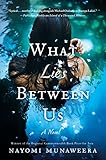 What Lies Between Us by Nayomi Munaweera: A novel about a mother and daughter who leave Sri Lanka after a domestic disturbance and struggle to find happiness in the United States. Munaweera won the Regional Commonwealth Book Prize for Asia for her first novel, Island of a Thousand Mirrors. (Lydia)
What Lies Between Us by Nayomi Munaweera: A novel about a mother and daughter who leave Sri Lanka after a domestic disturbance and struggle to find happiness in the United States. Munaweera won the Regional Commonwealth Book Prize for Asia for her first novel, Island of a Thousand Mirrors. (Lydia)
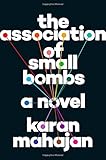 The Association of Small Bombs by Karan Mahajan: A novelist examines the enduring fallout of a “small” terrorist attack in a Delhi marketplace, and the way that families, politics, and pain weave together. Mahajan’s first novel, Family Planning, was a finalist for the Dylan Thomas prize. (Lydia)
The Association of Small Bombs by Karan Mahajan: A novelist examines the enduring fallout of a “small” terrorist attack in a Delhi marketplace, and the way that families, politics, and pain weave together. Mahajan’s first novel, Family Planning, was a finalist for the Dylan Thomas prize. (Lydia)
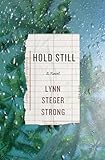 Hold Still by Lynn Steger Strong: An emotionally suspenseful debut about the relationship between a mother and her troubled young daughter, who commits an unfixable indiscretion that implicates them both. (Lydia)
Hold Still by Lynn Steger Strong: An emotionally suspenseful debut about the relationship between a mother and her troubled young daughter, who commits an unfixable indiscretion that implicates them both. (Lydia)
 Dodge Rose by Jack Cox: This young Australian has evidently made a close study of James Joyce and Samuel Beckett (and maybe of Henry Green) — and sets out in his first novel to recover and extend their enchantments. A small plot of plot — two cousins, newly introduced, attempt to settle the estate of an aunt — becomes the launch pad for all manner of prose pyrotechnics. (Garth)
Dodge Rose by Jack Cox: This young Australian has evidently made a close study of James Joyce and Samuel Beckett (and maybe of Henry Green) — and sets out in his first novel to recover and extend their enchantments. A small plot of plot — two cousins, newly introduced, attempt to settle the estate of an aunt — becomes the launch pad for all manner of prose pyrotechnics. (Garth)
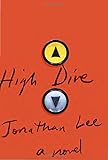 High Dive by Jonathan Lee: The Assassination of Margaret Thatcher could have been the title of Lee’s first novel, had Hilary Mantel not taken it for her 2014 short story collection. The similarities end with the subject matter, though. Where Mantel opted for a tight focus, Lee’s novel uses a real-life attempt to blow up Mrs. Thatcher as an opportunity to examine other, less public lives. (Garth)
High Dive by Jonathan Lee: The Assassination of Margaret Thatcher could have been the title of Lee’s first novel, had Hilary Mantel not taken it for her 2014 short story collection. The similarities end with the subject matter, though. Where Mantel opted for a tight focus, Lee’s novel uses a real-life attempt to blow up Mrs. Thatcher as an opportunity to examine other, less public lives. (Garth)
April:
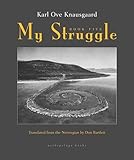 My Struggle: Book Five by Karl Ove Knausgaard: Translated from the Norwegian by Don Bartlett, the fifth installment of this six-volume autobiographical novel covers Knausgaard’s early adulthood. The book is about a love affair, alcoholism, death, and the author’s struggle to write. James Wood describes Knausgaard’s prose as “intense and vital […] Knausgaard is utterly honest, unafraid to voice universal anxieties.” (Bruna)
My Struggle: Book Five by Karl Ove Knausgaard: Translated from the Norwegian by Don Bartlett, the fifth installment of this six-volume autobiographical novel covers Knausgaard’s early adulthood. The book is about a love affair, alcoholism, death, and the author’s struggle to write. James Wood describes Knausgaard’s prose as “intense and vital […] Knausgaard is utterly honest, unafraid to voice universal anxieties.” (Bruna)
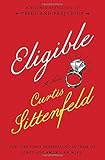 Eligible by Curtis Sittenfeld: In Sittenfeld’s modern retelling of Pride and Prejudice, Liz is a New York City magazine writer and Darcy is a Cincinnati neurosurgeon. Although the update is certainly on trend with themes of CrossFit and reality TV, Sittenfeld is an obvious choice to recreate Jane Austen’s comedy of manners. From her boarding school debut, Prep, to the much-lauded American Wife, a thinly veiled imagination of Laura Bush, Sittenfeld is a master at dissecting social norms to reveal the truths of human nature underneath. (Tess)
Eligible by Curtis Sittenfeld: In Sittenfeld’s modern retelling of Pride and Prejudice, Liz is a New York City magazine writer and Darcy is a Cincinnati neurosurgeon. Although the update is certainly on trend with themes of CrossFit and reality TV, Sittenfeld is an obvious choice to recreate Jane Austen’s comedy of manners. From her boarding school debut, Prep, to the much-lauded American Wife, a thinly veiled imagination of Laura Bush, Sittenfeld is a master at dissecting social norms to reveal the truths of human nature underneath. (Tess)
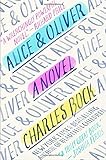 Alice & Oliver by Charles Bock: The author’s wife, Diana Colbert, died of leukemia in 2011 when their daughter was only three years old. Inspired in part by this personal tragedy, this second novel by the author of 2008’s Beautiful Children traces a day in the life of a young New York couple with a new baby after the wife is diagnosed with cancer. “I can’t remember the last time I stayed up all night to finish a book,” enthuses novelist Ayelet Waldman. “This novel laid me waste.” (Michael)
Alice & Oliver by Charles Bock: The author’s wife, Diana Colbert, died of leukemia in 2011 when their daughter was only three years old. Inspired in part by this personal tragedy, this second novel by the author of 2008’s Beautiful Children traces a day in the life of a young New York couple with a new baby after the wife is diagnosed with cancer. “I can’t remember the last time I stayed up all night to finish a book,” enthuses novelist Ayelet Waldman. “This novel laid me waste.” (Michael)
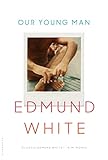 Our Young Man by Edmund White: White’s 13th novel sees a young Frenchman, Guy, leave home for New York City, where he begins a modeling career that catapults him to the heights of the fashion world. His looks, which lend him enduring popularity amongst his gay cohort on Fire Island, stay youthful for decades, allowing him to keep modeling until he’s 35. As the novel takes place in the ’70s and ’80s, it touches on the cataclysm of the AIDS crisis. (Thom)
Our Young Man by Edmund White: White’s 13th novel sees a young Frenchman, Guy, leave home for New York City, where he begins a modeling career that catapults him to the heights of the fashion world. His looks, which lend him enduring popularity amongst his gay cohort on Fire Island, stay youthful for decades, allowing him to keep modeling until he’s 35. As the novel takes place in the ’70s and ’80s, it touches on the cataclysm of the AIDS crisis. (Thom)
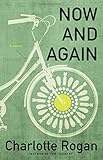 Now and Again by Charlotte Rogan: After harboring a secret writing habit for years, Rogan burst onto the bestseller list with her debut novel, The Lifeboat, which was praised for its portrayal of a complex heroine who, according to The New York Times, is “astute, conniving, comic and affecting.” Rogan’s second novel, Now and Again, stars an equally intricate secretary who finds proof of a high-level cover-up at the munitions plant where she works. It is both a topical look at whistleblowers and a critique of the Iraq War military-industrial complex. Teddy Wayne calls it “the novel we deserve for the war we didn’t.” (Claire)
Now and Again by Charlotte Rogan: After harboring a secret writing habit for years, Rogan burst onto the bestseller list with her debut novel, The Lifeboat, which was praised for its portrayal of a complex heroine who, according to The New York Times, is “astute, conniving, comic and affecting.” Rogan’s second novel, Now and Again, stars an equally intricate secretary who finds proof of a high-level cover-up at the munitions plant where she works. It is both a topical look at whistleblowers and a critique of the Iraq War military-industrial complex. Teddy Wayne calls it “the novel we deserve for the war we didn’t.” (Claire)
 Hystopia by David Means: After four published books, a rap sheet of prizes, and six short stories in The New Yorker, Means is coming out with his debut novel this spring. Hystopia is both the name of the book and a book-within-the-book, and it revolves around Eugene Allen, a Vietnam vet who comes up with an alternate history. In Allen’s bizarre, heady what-if, John F. Kennedy survives the ’60s, at the end of which he creates an agency called the Psych Corps that uses drugs to wipe traumas from people’s brains. (Thom)
Hystopia by David Means: After four published books, a rap sheet of prizes, and six short stories in The New Yorker, Means is coming out with his debut novel this spring. Hystopia is both the name of the book and a book-within-the-book, and it revolves around Eugene Allen, a Vietnam vet who comes up with an alternate history. In Allen’s bizarre, heady what-if, John F. Kennedy survives the ’60s, at the end of which he creates an agency called the Psych Corps that uses drugs to wipe traumas from people’s brains. (Thom)
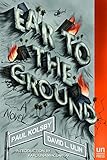 Ear to the Ground by David L. Ulin and Paul Kolsby: In this “rollicking” tale about 1990s L.A., seismologist Charlie Richter, grandson of the man who invented the Richter scale, heads to the City of Angels to work at the Center of Earthquake Science to prove his methods for predicting quakes. The book, co-written by an essayist and critic (Ulin) and a screenwriter and movie producer (Kolsby), comes with an introduction by Karolina Waclawiak, author of The Invaders, and was previously serialized in the L.A. Reader. The novel will be published by the small but mighty Unnamed Press, an L.A.-based publishing house with a roster of quirky and formally daring books. (Edan)
Ear to the Ground by David L. Ulin and Paul Kolsby: In this “rollicking” tale about 1990s L.A., seismologist Charlie Richter, grandson of the man who invented the Richter scale, heads to the City of Angels to work at the Center of Earthquake Science to prove his methods for predicting quakes. The book, co-written by an essayist and critic (Ulin) and a screenwriter and movie producer (Kolsby), comes with an introduction by Karolina Waclawiak, author of The Invaders, and was previously serialized in the L.A. Reader. The novel will be published by the small but mighty Unnamed Press, an L.A.-based publishing house with a roster of quirky and formally daring books. (Edan)
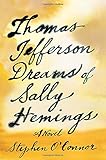 Thomas Jefferson Dreams of Sally Hemings by Stephen O’Connor: A fictional account of Thomas Jefferson and Sally Hemings told in conversations, fragments, and dreams. An excerpt is available at Electric Literature’s Recommended Reading — the site’s editor called it “experimental, metaphysical, deeply unsettling, and important.” (Lydia)
Thomas Jefferson Dreams of Sally Hemings by Stephen O’Connor: A fictional account of Thomas Jefferson and Sally Hemings told in conversations, fragments, and dreams. An excerpt is available at Electric Literature’s Recommended Reading — the site’s editor called it “experimental, metaphysical, deeply unsettling, and important.” (Lydia)
 Bardo or Not Bardo by Antoine Volodine: In his publisher’s synopsis, the French writer Volodine’s multi-novel project sounds appealingly nuts: “Most of his works take place in a post-apocalyptic world where members of the ‘post-exoticism’ writing movement have all been arrested as subversive elements.” A recent critical essay in The New Inquiry furthers the sense of a cult in the making. Bardo or Not Bardo, a comedy the characters of which keep bungling attempts at reincarnation, may be a good place to begin the indoctrination. (Garth)
Bardo or Not Bardo by Antoine Volodine: In his publisher’s synopsis, the French writer Volodine’s multi-novel project sounds appealingly nuts: “Most of his works take place in a post-apocalyptic world where members of the ‘post-exoticism’ writing movement have all been arrested as subversive elements.” A recent critical essay in The New Inquiry furthers the sense of a cult in the making. Bardo or Not Bardo, a comedy the characters of which keep bungling attempts at reincarnation, may be a good place to begin the indoctrination. (Garth)
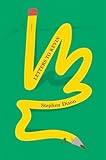 Letters to Kevin by Stephen Dixon: In 2015, it’s remarkably easy to make a phone call, so the latest novel by Stephen Dixon comes off as a Beckettian farce. The plot is absurd: in it, a man named Rudy sets out to call his friend Kevin Wafer, a teenager-going-on-college-student who lives across the country in Palo Alto. Rudy doesn’t have a phone, but when he tries to use a phone booth, a crane picks it up and deposits it (and Rudy) in a warehouse. Eventually, he gives up and opts to write a letter instead. Throughout, Dixon’s black-and-white drawings lend depth to his nightmare of inconvenience. (Thom)
Letters to Kevin by Stephen Dixon: In 2015, it’s remarkably easy to make a phone call, so the latest novel by Stephen Dixon comes off as a Beckettian farce. The plot is absurd: in it, a man named Rudy sets out to call his friend Kevin Wafer, a teenager-going-on-college-student who lives across the country in Palo Alto. Rudy doesn’t have a phone, but when he tries to use a phone booth, a crane picks it up and deposits it (and Rudy) in a warehouse. Eventually, he gives up and opts to write a letter instead. Throughout, Dixon’s black-and-white drawings lend depth to his nightmare of inconvenience. (Thom)
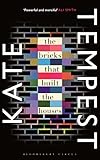 The Bricks That Built the Houses by Kate Tempest: Barely 30, Tempest has won awards for her poetry, performances, and recordings. Her long narrative poem “Brand New Ancients” found the through-line from Homer to Jay-Z. Now she turns to prose, in a novel about scrabbling young Londoners trying to outrun the past. (Garth)
The Bricks That Built the Houses by Kate Tempest: Barely 30, Tempest has won awards for her poetry, performances, and recordings. Her long narrative poem “Brand New Ancients” found the through-line from Homer to Jay-Z. Now she turns to prose, in a novel about scrabbling young Londoners trying to outrun the past. (Garth)
May:
 Zero K by Don DeLillo: When Jennifer Egan introduced DeLillo for his reception of the National Book Foundation Lifetime Achievement Award, she noted “There will be no better way to understand life in the late-20th and early-21st century than reading the books of Don DeLillo.” Paranoia does not always lead to prescience, but DeLillo’s anxious eye toward the future has always been tempered by his identity as the son of immigrants and the Catholic spectacle of his youth. Zero K begins big: “Everybody wants to own the end of the world,” says billionaire Ross Lockhart to his son Jeff, the novel’s narrator. Jeff notes “We were sharing a rare point in time, contemplative, and the moment was made complete by his vintage sunglasses, bringing the night indoors.” No one is better than DeLillo at vaulting between registers of comedy and tragedy, between the consequence of eternity and the power of a single moment. (Nick R.)
Zero K by Don DeLillo: When Jennifer Egan introduced DeLillo for his reception of the National Book Foundation Lifetime Achievement Award, she noted “There will be no better way to understand life in the late-20th and early-21st century than reading the books of Don DeLillo.” Paranoia does not always lead to prescience, but DeLillo’s anxious eye toward the future has always been tempered by his identity as the son of immigrants and the Catholic spectacle of his youth. Zero K begins big: “Everybody wants to own the end of the world,” says billionaire Ross Lockhart to his son Jeff, the novel’s narrator. Jeff notes “We were sharing a rare point in time, contemplative, and the moment was made complete by his vintage sunglasses, bringing the night indoors.” No one is better than DeLillo at vaulting between registers of comedy and tragedy, between the consequence of eternity and the power of a single moment. (Nick R.)
 LaRose by Louise Erdrich: On a summer day in North Dakota, 1999, a man named Landreaux stalks a deer along his property line. He shoots and misses, but he’s hit something else: his neighbor’s five-year-old son, Dusty. Landreaux’s close with his neighbors, in part because he has a five-year-old son of his own, LaRose, and the boys were inseparable. Erdrich’s 15th novel explores the complicated aftermath of the death, as Landreaux and his wife decide to give LaRose to their grieving neighbors as retribution. (Emily)
LaRose by Louise Erdrich: On a summer day in North Dakota, 1999, a man named Landreaux stalks a deer along his property line. He shoots and misses, but he’s hit something else: his neighbor’s five-year-old son, Dusty. Landreaux’s close with his neighbors, in part because he has a five-year-old son of his own, LaRose, and the boys were inseparable. Erdrich’s 15th novel explores the complicated aftermath of the death, as Landreaux and his wife decide to give LaRose to their grieving neighbors as retribution. (Emily)
 The Fox Was Ever the Hunter by Herta Müller: As if living in a totalitarian regime wasn’t bad enough, the four friends in Müller’s novel must contend with the fact that one of them is spying on the group for the secret police. Capturing the fear and moral corruption of the final days of Romania’s Ceausescu regime — and inevitably drawing on her own persecution by the secret police — Müller won a Nobel Prize in Literature in 2009 for her work. Now, her long-time translator Philip Boehm brings the classic to English readers. (Tess)
The Fox Was Ever the Hunter by Herta Müller: As if living in a totalitarian regime wasn’t bad enough, the four friends in Müller’s novel must contend with the fact that one of them is spying on the group for the secret police. Capturing the fear and moral corruption of the final days of Romania’s Ceausescu regime — and inevitably drawing on her own persecution by the secret police — Müller won a Nobel Prize in Literature in 2009 for her work. Now, her long-time translator Philip Boehm brings the classic to English readers. (Tess)
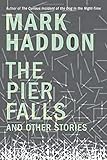 The Pier Falls by Mark Haddon: Haddon is nothing if not versatile. You know him for his international bestseller, The Curious Incident of the Dog in the Night-Time, but did you know Haddon is also an illustrator, screenwriter, poet, winner of two BAFTAs, and has written 15 books for children? It might not come as a surprise that his new book is a departure: a collection of short stories. An expedition to Mars goes wrong, a seaside pier collapses, a woman is marooned on an island, two boys find a gun in a shoebox. The stories are billed as “searingly imaginative and emotionally taut.” (Claire)
The Pier Falls by Mark Haddon: Haddon is nothing if not versatile. You know him for his international bestseller, The Curious Incident of the Dog in the Night-Time, but did you know Haddon is also an illustrator, screenwriter, poet, winner of two BAFTAs, and has written 15 books for children? It might not come as a surprise that his new book is a departure: a collection of short stories. An expedition to Mars goes wrong, a seaside pier collapses, a woman is marooned on an island, two boys find a gun in a shoebox. The stories are billed as “searingly imaginative and emotionally taut.” (Claire)
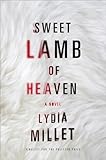 Sweet Lamb of Heaven by Lydia Millet: In her 10th novel, Millet delves into the territory of the psychological thriller: a young mother, Anna, takes her six-year-old daughter, Lena, and flees her estranged husband, Ned, who’s running for office in Alaska. Anna and Lena go into hiding in a derelict hotel in Maine, which quickly begins to fill up with other guests; guests who, as the novel progresses, begin to seem less and less like ordinary tourists, even as Ned begins to seem more and more sociopathic. (Emily)
Sweet Lamb of Heaven by Lydia Millet: In her 10th novel, Millet delves into the territory of the psychological thriller: a young mother, Anna, takes her six-year-old daughter, Lena, and flees her estranged husband, Ned, who’s running for office in Alaska. Anna and Lena go into hiding in a derelict hotel in Maine, which quickly begins to fill up with other guests; guests who, as the novel progresses, begin to seem less and less like ordinary tourists, even as Ned begins to seem more and more sociopathic. (Emily)
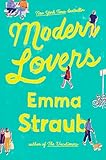 Modern Lovers by Emma Straub: What happens when you age out of your cool? It’s a topic that filmmaker Noah Baumbach has explored, and Straub is his literary counterpart. Her third novel follows three Brooklyn Gen X friends and former bandmates nearing 50 and handing off the baton of hipness to their children, stifled ambition and sexual frustration included. With the multigenerational structure, it would be easy to compare Straub to other masters of the genre like Meg Wolitzer or Jennifer Egan, but she’s already a master in her own right after The Vacationers, so Modern Lovers should prove to be a witty romp. (Tess)
Modern Lovers by Emma Straub: What happens when you age out of your cool? It’s a topic that filmmaker Noah Baumbach has explored, and Straub is his literary counterpart. Her third novel follows three Brooklyn Gen X friends and former bandmates nearing 50 and handing off the baton of hipness to their children, stifled ambition and sexual frustration included. With the multigenerational structure, it would be easy to compare Straub to other masters of the genre like Meg Wolitzer or Jennifer Egan, but she’s already a master in her own right after The Vacationers, so Modern Lovers should prove to be a witty romp. (Tess)
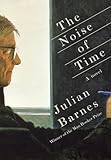 The Noise of Time by Julian Barnes: Barnes’s new novel — his first since 2011’s Man Booker Prize-winning The Sense of an Ending — concerns the life of the Russian composer Dmitri Shostakovich. Barnes considers his character not just on a human level, as a young man fearing for his life and the safety of his family under Joseph Stalin, but also as a lens through which to examine the fall of the Soviet Union and the role of the artist in society. (Emily)
The Noise of Time by Julian Barnes: Barnes’s new novel — his first since 2011’s Man Booker Prize-winning The Sense of an Ending — concerns the life of the Russian composer Dmitri Shostakovich. Barnes considers his character not just on a human level, as a young man fearing for his life and the safety of his family under Joseph Stalin, but also as a lens through which to examine the fall of the Soviet Union and the role of the artist in society. (Emily)
 Everybody’s Fool by Richard Russo: There are two kinds of Russo aficionados — those who came to him through his hilarious 1997 academic satire Straight Man and those who started with his wry, brooding 1993 breakthrough Nobody’s Fool. The latter strain of Russophile will rejoice that Russo has brought back Donald “Sully” Sullivan, the irascible hero of Nobody’s Fool, who was played by Paul Newman in the movie version. Two decades on, Sully has learned from his doctor that he has at most a year or two to live, and spends the novel striving to keep the news from everybody he loves. (Michael)
Everybody’s Fool by Richard Russo: There are two kinds of Russo aficionados — those who came to him through his hilarious 1997 academic satire Straight Man and those who started with his wry, brooding 1993 breakthrough Nobody’s Fool. The latter strain of Russophile will rejoice that Russo has brought back Donald “Sully” Sullivan, the irascible hero of Nobody’s Fool, who was played by Paul Newman in the movie version. Two decades on, Sully has learned from his doctor that he has at most a year or two to live, and spends the novel striving to keep the news from everybody he loves. (Michael)
 The Sport of Kings by C.E. Morgan: You had to know the person who’s spent more than a decade working at thoroughbred racetracks would choose to blurb the horse racing novel. Morgan, who was named one of The New Yorker’s 20 Under 40 in 2010, has set both of her novels in her native Kentucky; this one centers on a powerful family aiming to breed the next racing great, and a young black man who comes to work for them and brings their prejudices into full view. It is described as “an unflinching portrait of lives cast in shadow by the enduring legacy of slavery.” (Elizabeth)
The Sport of Kings by C.E. Morgan: You had to know the person who’s spent more than a decade working at thoroughbred racetracks would choose to blurb the horse racing novel. Morgan, who was named one of The New Yorker’s 20 Under 40 in 2010, has set both of her novels in her native Kentucky; this one centers on a powerful family aiming to breed the next racing great, and a young black man who comes to work for them and brings their prejudices into full view. It is described as “an unflinching portrait of lives cast in shadow by the enduring legacy of slavery.” (Elizabeth)
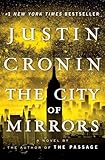 The City of Mirrors by Justin Cronin: Cronin brings his mammoth, vampire apocalypse horror trilogy to a close this spring with The City of Mirrors. The Twelve (godfather vampires) have been defeated, and their descendants with them, and the human colonists start to retake the world, no longer confined to their fortresses and hiding places. But are they really safe? (They’re not.) Zero — the vampire who created The Twelve — survives, and he’s mad as hell. The conclusion of this suspenseful, surprising, frequently heartwarming, more often creepy-as-shit series promises to go out with a bang. (Janet)
The City of Mirrors by Justin Cronin: Cronin brings his mammoth, vampire apocalypse horror trilogy to a close this spring with The City of Mirrors. The Twelve (godfather vampires) have been defeated, and their descendants with them, and the human colonists start to retake the world, no longer confined to their fortresses and hiding places. But are they really safe? (They’re not.) Zero — the vampire who created The Twelve — survives, and he’s mad as hell. The conclusion of this suspenseful, surprising, frequently heartwarming, more often creepy-as-shit series promises to go out with a bang. (Janet)
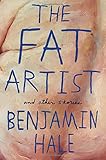 The Fat Artist and Other Stories by Benjamin Hale: Hale’s simian debut novel, The Evolution of Bruno Littlemore, was widely praised; it takes talent to craft the believable voice of a chimpanzee who has “finally decided to give this undeserving and spiritually diseased world the generous gift of my memoirs.” Hale recently co-edited an issue of Conjunctions titled “A Menagerie,” that collects bestial tales. The short story form allows Hale’s own penchant for invention to further shine. One story, “The Minus World,” investigates shadow, “unfinished or rejected levels that the programmers left floating around” in Super Mario Bros: “It’s as if Mario had traveled to the distant, frayed edges of space and time. He must look into the void. It’s a little frightening.” The Fat Artist, which includes stories about dominatrices and performance artists, is sure to please. (Nick R.)
The Fat Artist and Other Stories by Benjamin Hale: Hale’s simian debut novel, The Evolution of Bruno Littlemore, was widely praised; it takes talent to craft the believable voice of a chimpanzee who has “finally decided to give this undeserving and spiritually diseased world the generous gift of my memoirs.” Hale recently co-edited an issue of Conjunctions titled “A Menagerie,” that collects bestial tales. The short story form allows Hale’s own penchant for invention to further shine. One story, “The Minus World,” investigates shadow, “unfinished or rejected levels that the programmers left floating around” in Super Mario Bros: “It’s as if Mario had traveled to the distant, frayed edges of space and time. He must look into the void. It’s a little frightening.” The Fat Artist, which includes stories about dominatrices and performance artists, is sure to please. (Nick R.)
 Imagine Me Gone by Adam Haslett: In his third book and second novel, Imagine Me Gone, Haslett returns to the territory of mental illness — the subject of many of the stories in his award-winning debut collection You Are Not a Stranger Here. Margaret marries John, after learning of his serious struggle with depression, and later their eldest son, Michael, battles with despair as well. From Joy Williams: “[O]ne of the most harrowing and sustained descriptions of a mind in obsessive turmoil and disrepair that I’ve ever read.” Peter Carey, on the other hand, speaks to the hopeful elements of the novel — “both dreadfully sad and hilariously funny all at once. It is luminous with love.” (Sonya)
Imagine Me Gone by Adam Haslett: In his third book and second novel, Imagine Me Gone, Haslett returns to the territory of mental illness — the subject of many of the stories in his award-winning debut collection You Are Not a Stranger Here. Margaret marries John, after learning of his serious struggle with depression, and later their eldest son, Michael, battles with despair as well. From Joy Williams: “[O]ne of the most harrowing and sustained descriptions of a mind in obsessive turmoil and disrepair that I’ve ever read.” Peter Carey, on the other hand, speaks to the hopeful elements of the novel — “both dreadfully sad and hilariously funny all at once. It is luminous with love.” (Sonya)
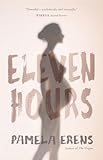 Eleven Hours by Pamela Erens: In her two previous novels, Erens has quietly built a reputation as a sharp stylist with a gift for bringing quirky outsiders alive on the page. In Eleven Hours, a very pregnant young woman arrives alone at the maternity ward wanting to give birth without a fetal heart monitor, IV tubes, or epidural anesthesia. The novel follows her 11-hour labor in the care of a Haitian nurse who is herself pregnant. “Erens evokes the layered experience of living in a body — its tides of memory, sensation, and emotion — like no other writer I know,” writes novelist Karen Russell. (Michael)
Eleven Hours by Pamela Erens: In her two previous novels, Erens has quietly built a reputation as a sharp stylist with a gift for bringing quirky outsiders alive on the page. In Eleven Hours, a very pregnant young woman arrives alone at the maternity ward wanting to give birth without a fetal heart monitor, IV tubes, or epidural anesthesia. The novel follows her 11-hour labor in the care of a Haitian nurse who is herself pregnant. “Erens evokes the layered experience of living in a body — its tides of memory, sensation, and emotion — like no other writer I know,” writes novelist Karen Russell. (Michael)
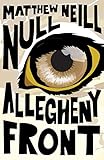 Allegheny Front by Matthew Neill Null: A collection of short stories set in the author’s native West Virginia, where people and landscapes and animals reap the wages of resource extraction. Null’s first novel, Honey from the Lion, was a historical novel about West Virginia’s timber industry. (Lydia)
Allegheny Front by Matthew Neill Null: A collection of short stories set in the author’s native West Virginia, where people and landscapes and animals reap the wages of resource extraction. Null’s first novel, Honey from the Lion, was a historical novel about West Virginia’s timber industry. (Lydia)
June:
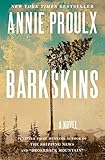 Barkskins by Annie Proulx: The award-winning author of The Shipping News and Brokeback Mountain returns with a new novel in June — 10 years in the making — about wilderness, the rampant destruction of forests, and greed. At over 800 pages, this ambitious novel spans over three centuries and travels from France to China to New England. (Bruna)
Barkskins by Annie Proulx: The award-winning author of The Shipping News and Brokeback Mountain returns with a new novel in June — 10 years in the making — about wilderness, the rampant destruction of forests, and greed. At over 800 pages, this ambitious novel spans over three centuries and travels from France to China to New England. (Bruna)
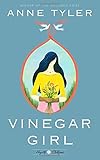 Vinegar Girl by Anne Tyler: If anyone was going to update The Taming of the Shrew, it should be the Pulitzer-winning Tyler, who is a keen observer of the nuances of the American family. In her take on the classic Shakespearean comedy, Kate is managing her odd scientist father’s household when his assistant might be deported, and the men scheme to keep him in the country with Kate’s help. Even though we think we already know the ending, the independent and contemporary Kate might have a surprise up her sleeve. (Tess)
Vinegar Girl by Anne Tyler: If anyone was going to update The Taming of the Shrew, it should be the Pulitzer-winning Tyler, who is a keen observer of the nuances of the American family. In her take on the classic Shakespearean comedy, Kate is managing her odd scientist father’s household when his assistant might be deported, and the men scheme to keep him in the country with Kate’s help. Even though we think we already know the ending, the independent and contemporary Kate might have a surprise up her sleeve. (Tess)
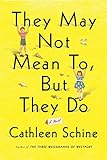 They May Not Mean To, But They Do by Cathleen Schine: Her new novel, They May Not Mean To, But They Do, will solidify Schine’s reputation as “the Jane Austen of the 21st century.” When her husband dies, Joy Bergman finds that her children, Molly and Daniel, have an arsenal of weapons to fend off the woes of widowhood. But Joy is not about to take advice or antidepressants from anyone. When an ardent suitor from Joy’s college days reappears, Molly and Daniel must cope with their widowed mother becoming as willful and rebellious as their own kids. They May Not Mean To, But They Do is a compassionate look at three generations, all coming of age together. (Bill)
They May Not Mean To, But They Do by Cathleen Schine: Her new novel, They May Not Mean To, But They Do, will solidify Schine’s reputation as “the Jane Austen of the 21st century.” When her husband dies, Joy Bergman finds that her children, Molly and Daniel, have an arsenal of weapons to fend off the woes of widowhood. But Joy is not about to take advice or antidepressants from anyone. When an ardent suitor from Joy’s college days reappears, Molly and Daniel must cope with their widowed mother becoming as willful and rebellious as their own kids. They May Not Mean To, But They Do is a compassionate look at three generations, all coming of age together. (Bill)
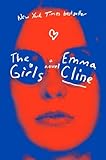 The Girls by Emma Cline: This debut follows two young women into the world of a Manson-ish cult in the 1960s. Cline won the 2014 Plimpton Prize from the Paris Review, which also published her essay about how she came to this material. (Garth)
The Girls by Emma Cline: This debut follows two young women into the world of a Manson-ish cult in the 1960s. Cline won the 2014 Plimpton Prize from the Paris Review, which also published her essay about how she came to this material. (Garth)
Sons and Daughters of Ease and Plenty by Ramona Ausubel: Ausubel’s first novel, No One Is Here Except All of Us, won the PEN Center USA Fiction Award and the VCU Cabell First Novel Award. The New York Times Book Review wrote that her story collection, A Guide to Being Born, “finds a way to record the tensions between the corporeal and the invisible” — that’s an excellent way to read all her mischievous, magical work, actually. Ausubel’s second novel is about a moneyed family on Martha’s Vineyard in the 1970s — except this moneyed family is out of dough. The terror of being broke spins parents Fern and Edgar off on separate, strange journeys; meanwhile, their three kids are left to fend for themselves “in an improvised Neverland helmed by the tender, witty, and resourceful Cricket, age nine.” Maggie Shipstead calls it a “brilliantly imagined novel about family and fortune and the hidden knots between.” (Edan)
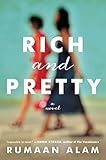 Rich and Pretty by Rumaan Alam: In Alam’s debut novel, Rich and Pretty, Sarah is the rich one and Lauren is the pretty one. They first met 20 years ago at a tony private school in Manhattan and became inseparable through high school, college, first jobs, and first loves. But now, all grown up and living very different New York lives, they have to navigate the tricky ways that the closest of friendships evolve, erode, and endure. Emma Straub, author of The Vacationers, says Alam, a Year in Reading alum at The Millions, has crafted a debut that’s “smart, sharp and beautifully made.” (Bill)
Rich and Pretty by Rumaan Alam: In Alam’s debut novel, Rich and Pretty, Sarah is the rich one and Lauren is the pretty one. They first met 20 years ago at a tony private school in Manhattan and became inseparable through high school, college, first jobs, and first loves. But now, all grown up and living very different New York lives, they have to navigate the tricky ways that the closest of friendships evolve, erode, and endure. Emma Straub, author of The Vacationers, says Alam, a Year in Reading alum at The Millions, has crafted a debut that’s “smart, sharp and beautifully made.” (Bill)
 Homegoing by Yaa Gyasi: Gyasi’s debut distills hundreds of years of of history into 300 pages, tracing the lives and legacies of two Ghanaian half-sisters, one of them sold into slavery, one of them comparatively free. (Garth)
Homegoing by Yaa Gyasi: Gyasi’s debut distills hundreds of years of of history into 300 pages, tracing the lives and legacies of two Ghanaian half-sisters, one of them sold into slavery, one of them comparatively free. (Garth)
July and Beyond:
Home Field by Hannah Gersen: Our own Hannah Gersen’s debut novel is the story of Dean, a high school football coach in small town Maryland — and therefore a pillar of his community — whose life comes untethered after his wife’s suicide. Left to raise three children dealing with their mother’s death — a daughter at Swarthmore, an 11-year-old son acting out, and an eight-year-old son who barely understands it all — not to mention keep winning football games, Dean has to take stock of the life he thought he had, and how to move forward. (Janet)
Here I Am by Jonathan Safran Foer: FSG editor Eric Chinski knows Foer’s new novel — his first since Extremely Loud and Incredibly Close (2005) — better than anyone (other than Foer himself of course). Chinski says of Here I Am, “It’s got this high-wire inventiveness and intensity of imagination in it, and the sheer energy that we associate with Jonathan’s writing, but it’s a big step forward for him. It’s got a kind of toughness; it’s dirty, it’s kind of funny, like Portnoy’s Complaint, it exposes American Jewish life.” It’s not, Chinski says, autobiographical in any strict sense, but does borrow from Foer’s life — the story of a Jewish family, divorce, and three sons, in Washington D.C. (Sonya)
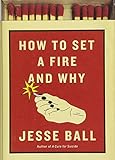 How to Set a Fire and Why by Jesse Ball: In his new novel, Ball follows the trajectory of a brilliant teenager living an impoverished and increasingly precarious life in the absence of her parents. Her father is dead, her mother institutionalized, and when she discovers that there’s an arson club at her school, she finds herself rapidly running out of reasons not to set the world on fire. (Emily)
How to Set a Fire and Why by Jesse Ball: In his new novel, Ball follows the trajectory of a brilliant teenager living an impoverished and increasingly precarious life in the absence of her parents. Her father is dead, her mother institutionalized, and when she discovers that there’s an arson club at her school, she finds herself rapidly running out of reasons not to set the world on fire. (Emily)
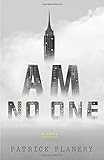 I Am No One by Patrick Flanery: How far does reasonable suspicion live from outright paranoia? Are they close neighbors; do they overlap? These are questions for Jeremy O’Keefe, a professor who has just returned to New York City after 10 years abroad, and suddenly finds himself the object of obsession for a pale young man from his past — or is he? (Nick M.)
I Am No One by Patrick Flanery: How far does reasonable suspicion live from outright paranoia? Are they close neighbors; do they overlap? These are questions for Jeremy O’Keefe, a professor who has just returned to New York City after 10 years abroad, and suddenly finds himself the object of obsession for a pale young man from his past — or is he? (Nick M.)
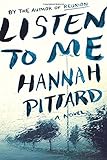 Listen to Me by Hannah Pittard: Winner of the Amanda Davis Award from McSweeney’s and author of the novels Reunion and The Fates Will Find Their Way, Pittard now brings us the story of a young married couple, Mark and Maggie, on a road trip gone wrong. Maggie’s recently been robbed at gun point, and by the time they stop for the night at an out-of-the-way inn (without power), the two aren’t even speaking to one another. Frederick Barthelme calls it “a positively Hitchcockian misadventure” and the jacket copy dubs it a “modern Gothic.” (Edan)
Listen to Me by Hannah Pittard: Winner of the Amanda Davis Award from McSweeney’s and author of the novels Reunion and The Fates Will Find Their Way, Pittard now brings us the story of a young married couple, Mark and Maggie, on a road trip gone wrong. Maggie’s recently been robbed at gun point, and by the time they stop for the night at an out-of-the-way inn (without power), the two aren’t even speaking to one another. Frederick Barthelme calls it “a positively Hitchcockian misadventure” and the jacket copy dubs it a “modern Gothic.” (Edan)
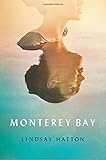 Monterey Bay by Lindsay Hatton: Hatton (my quondam classmate) blends historical fact — the life of John Steinbeck circa Cannery Row — with the story of a young woman discovering the complexities of adult life. In the process, the novel illuminates the founding of the famous Monterey Bay Aquarium. Celeste Ng, in her blurb, compares Monterey Bay, Euphoria, and The Signature of All Things. (Garth)
Monterey Bay by Lindsay Hatton: Hatton (my quondam classmate) blends historical fact — the life of John Steinbeck circa Cannery Row — with the story of a young woman discovering the complexities of adult life. In the process, the novel illuminates the founding of the famous Monterey Bay Aquarium. Celeste Ng, in her blurb, compares Monterey Bay, Euphoria, and The Signature of All Things. (Garth)
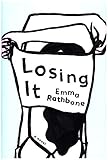 Losing It by Emma Rathbone: In her debut, The Patterns of Paper Monsters, Rathbone proved herself a wry observer of coming of age in difficult circumstances. Her second novel follows this theme, as protagonist Julia Greenfield visits her spinster aunt during a hot North Carolina summer to conquer her greatest insecurity: why she’s still a virgin at 26. Except her aunt is one as well at 58. What follows is a candid yet funny take on just what desire and love mean. (Tess)
Losing It by Emma Rathbone: In her debut, The Patterns of Paper Monsters, Rathbone proved herself a wry observer of coming of age in difficult circumstances. Her second novel follows this theme, as protagonist Julia Greenfield visits her spinster aunt during a hot North Carolina summer to conquer her greatest insecurity: why she’s still a virgin at 26. Except her aunt is one as well at 58. What follows is a candid yet funny take on just what desire and love mean. (Tess)
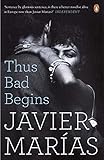 Thus Bad Begins by Javier Marías: Marías returns with another masterful tapestry of noir-ish twists and digressive cerebration. A young man goes to work for a famous film director, and then finds himself entangled with the mysteries of the director’s wife. This one will be published in the U.S. in the fall. (Garth)
Thus Bad Begins by Javier Marías: Marías returns with another masterful tapestry of noir-ish twists and digressive cerebration. A young man goes to work for a famous film director, and then finds himself entangled with the mysteries of the director’s wife. This one will be published in the U.S. in the fall. (Garth)
More from The Millions:
The good stuff: The Millions’ Notable articles
The motherlode: The Millions’ Books and Reviews
Like what you see? Learn about 5 insanely easy ways to Support The Millions, and follow The Millions on Twitter, Facebook, Tumblr.




